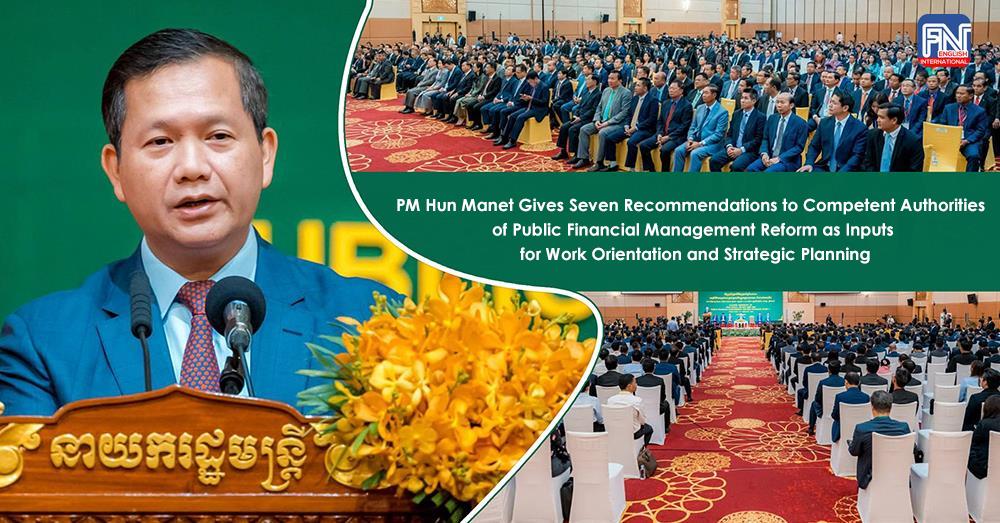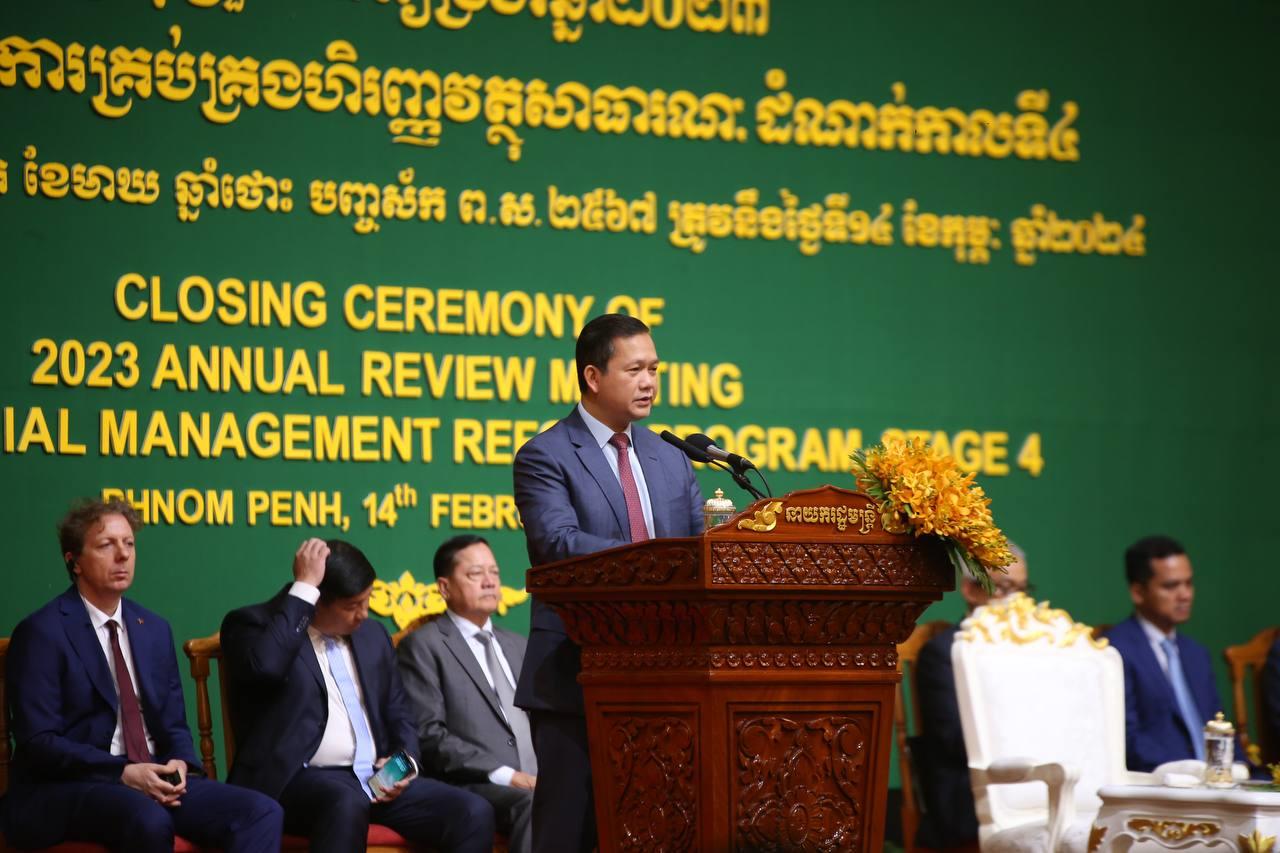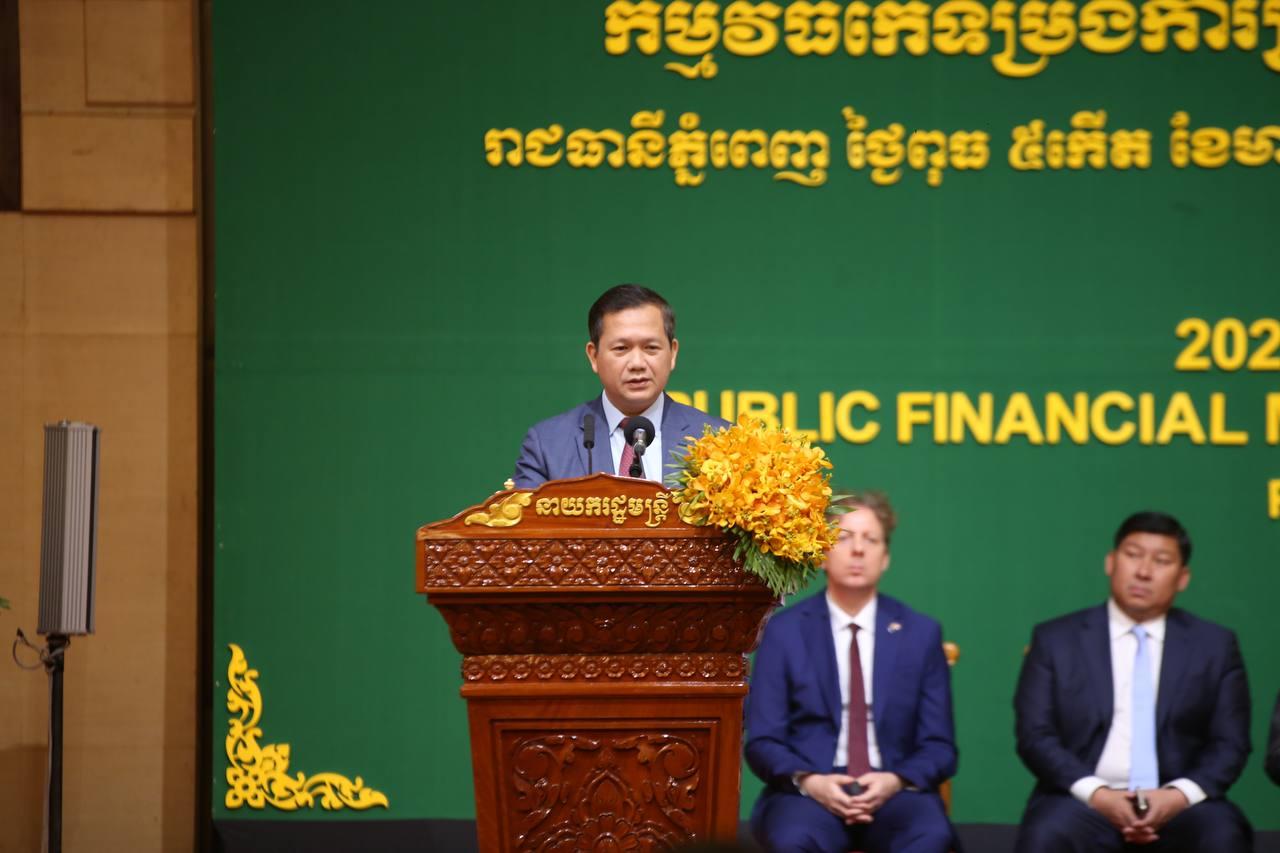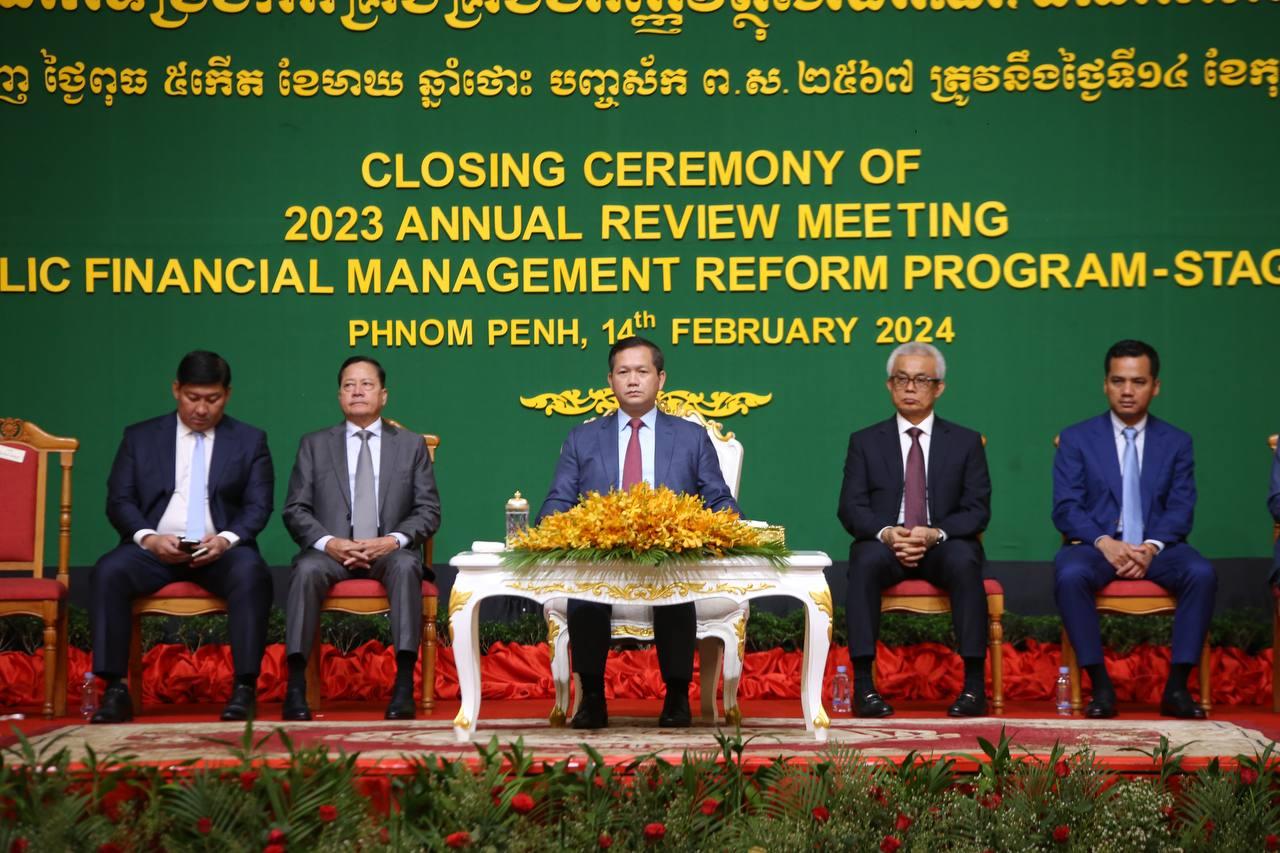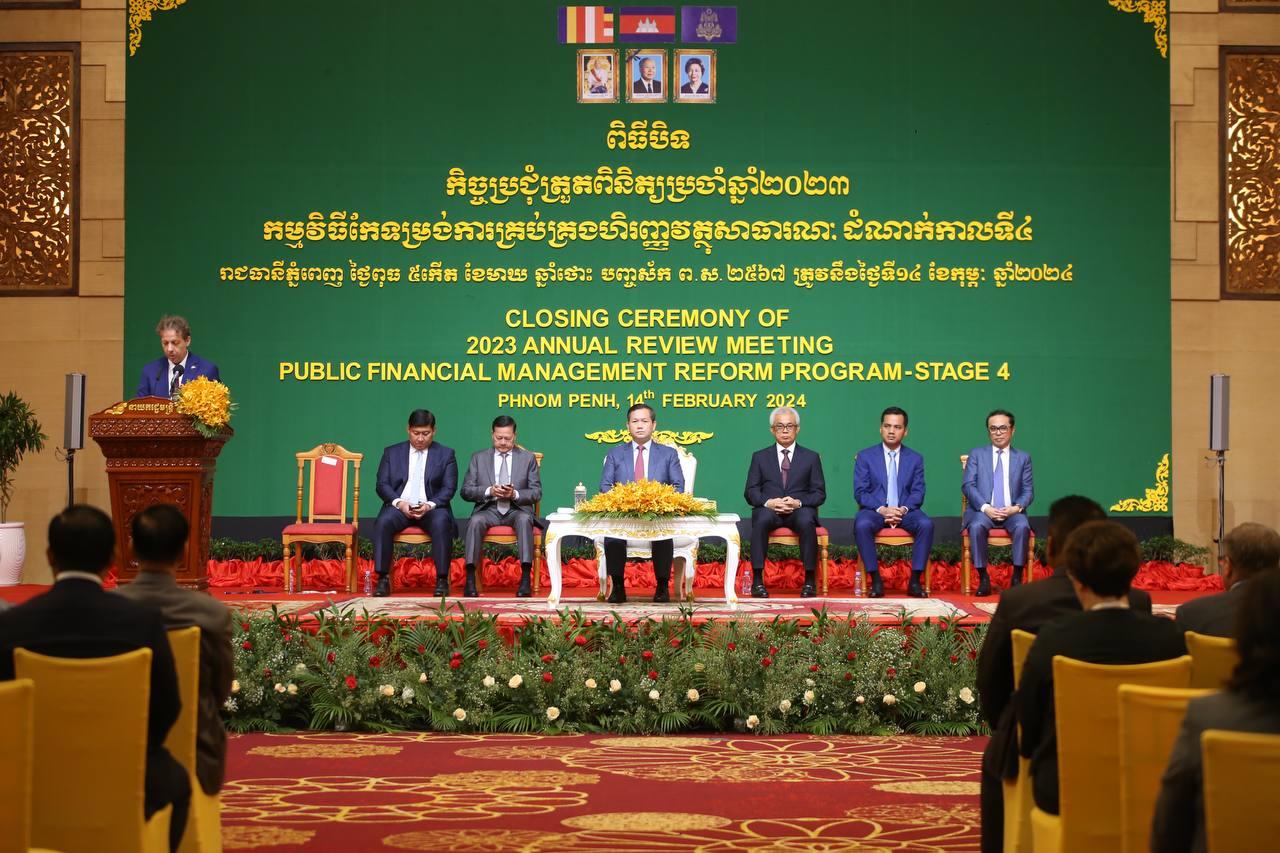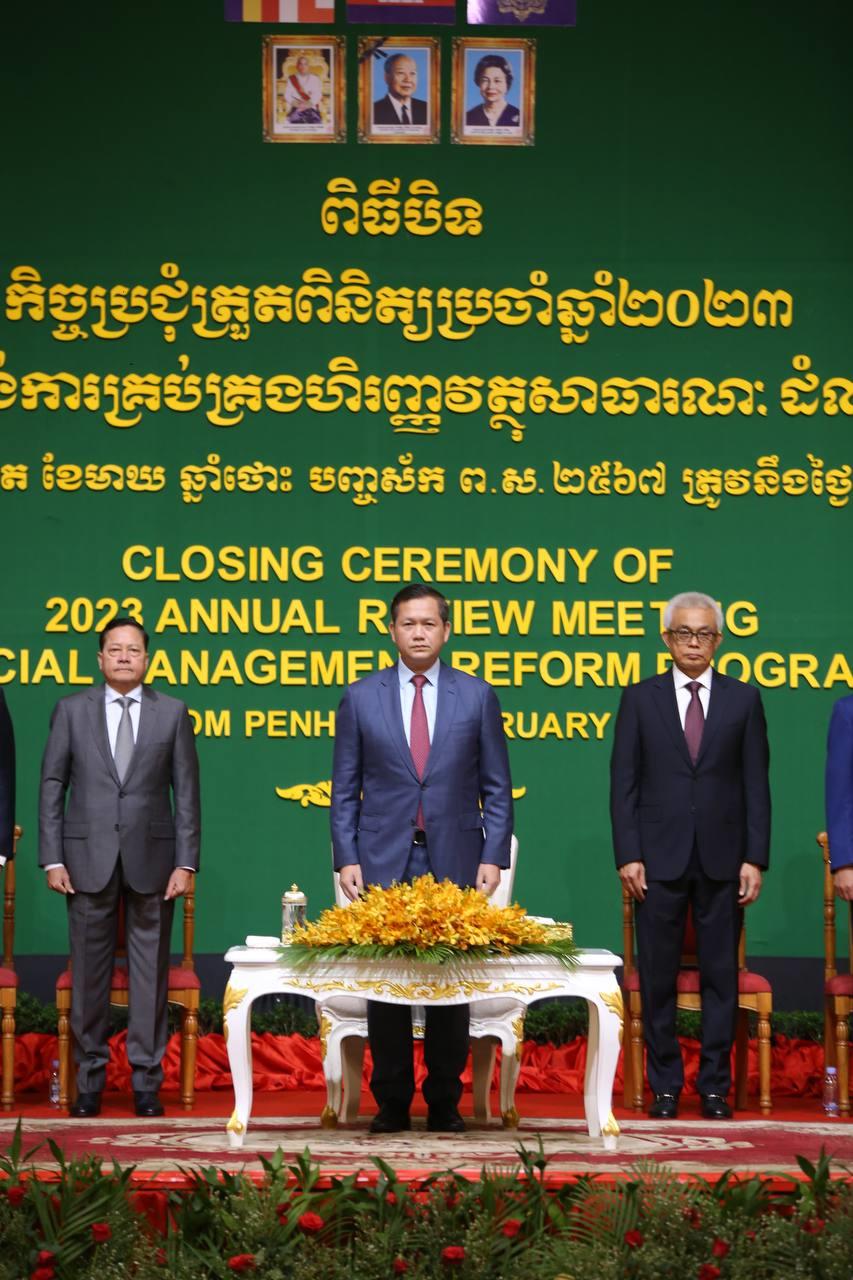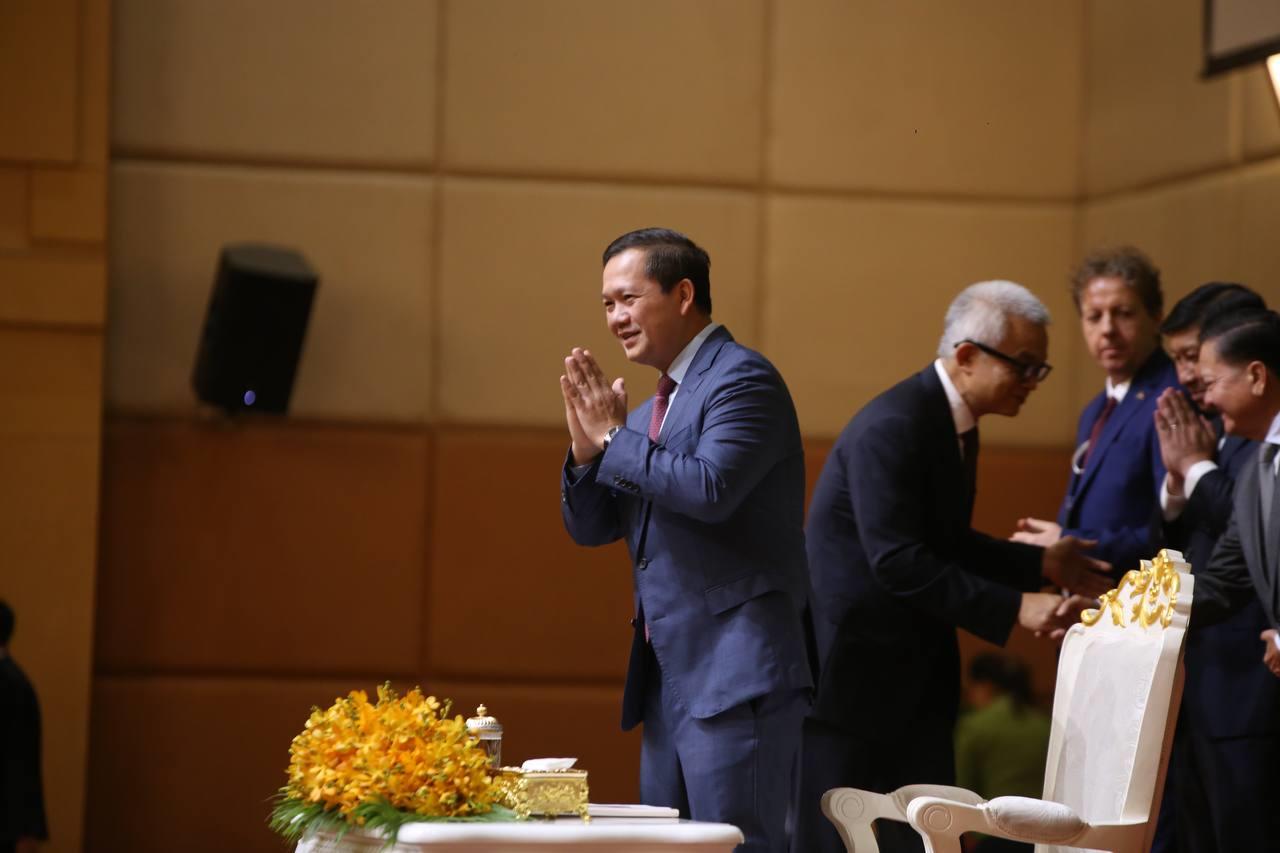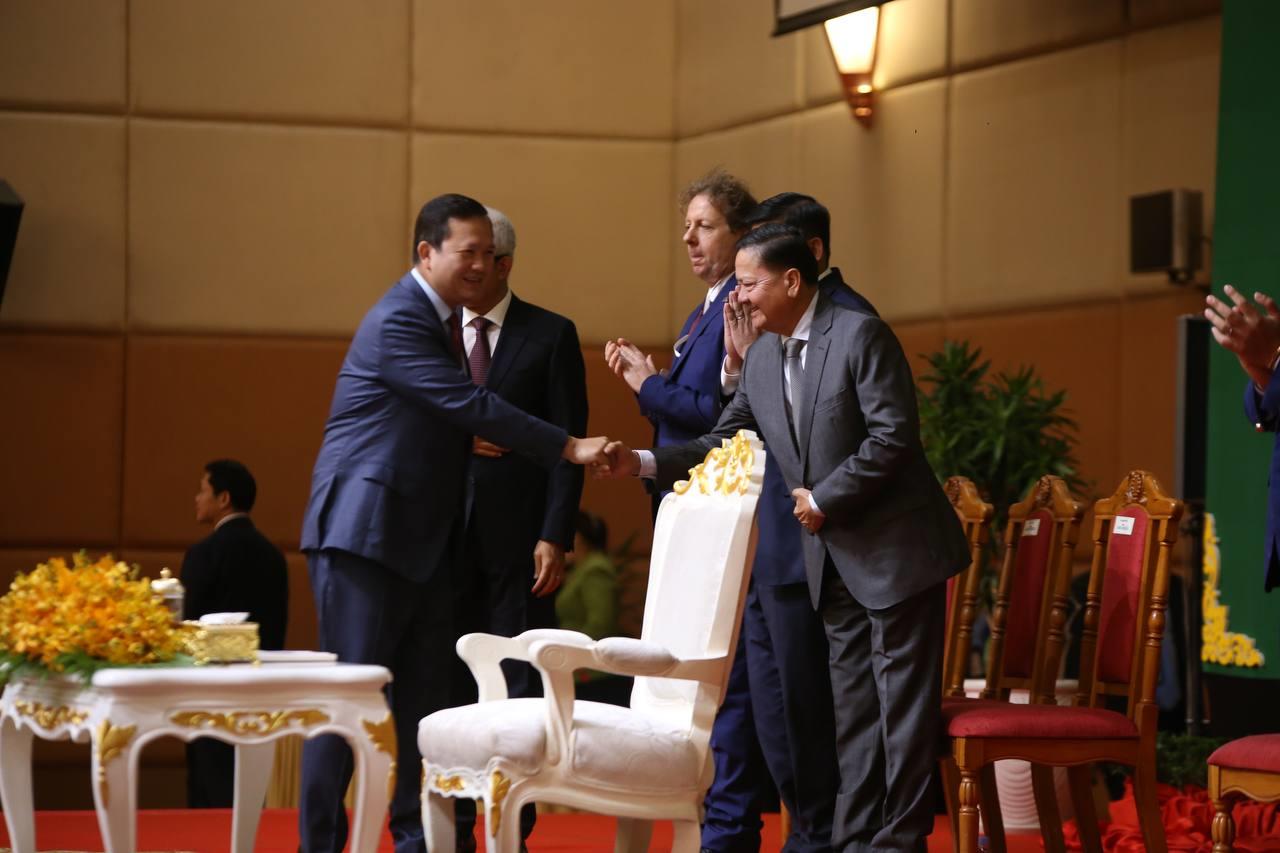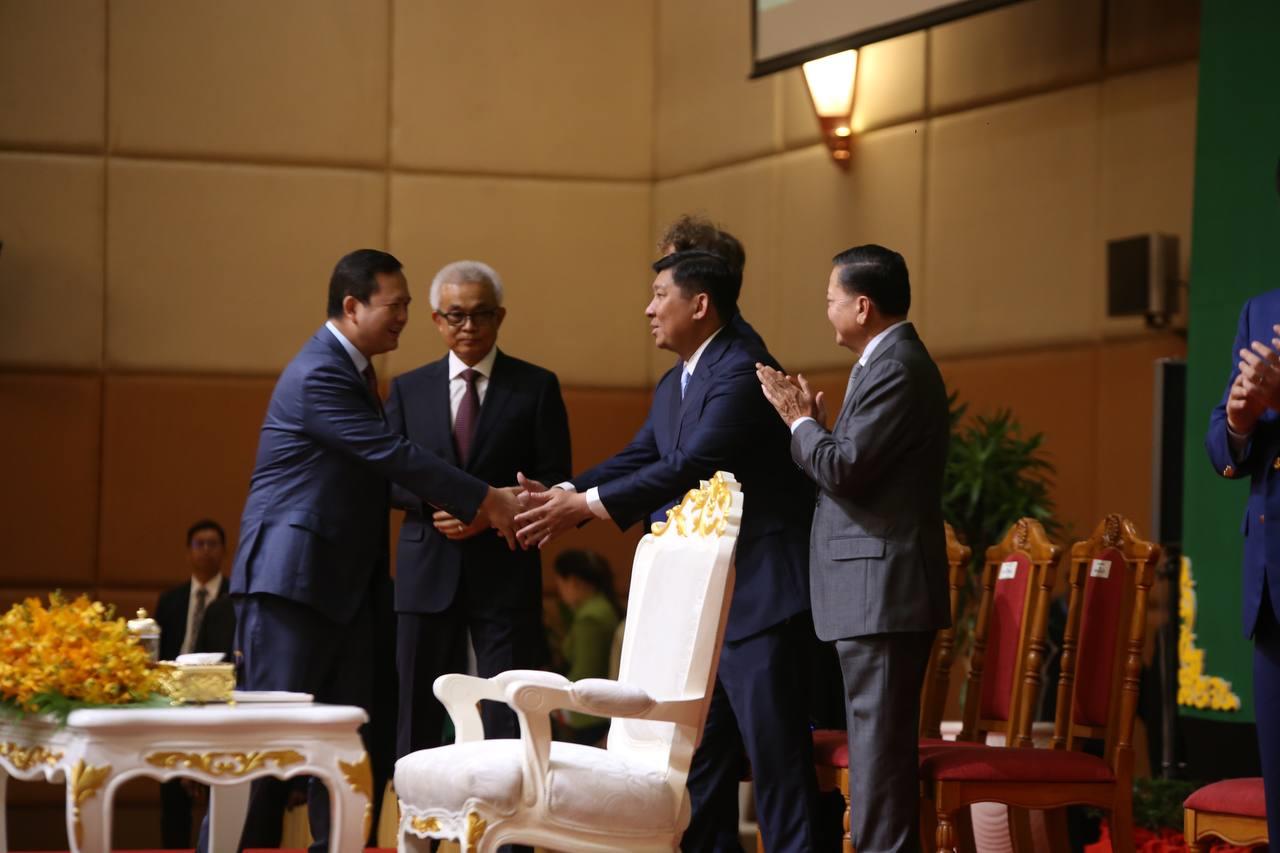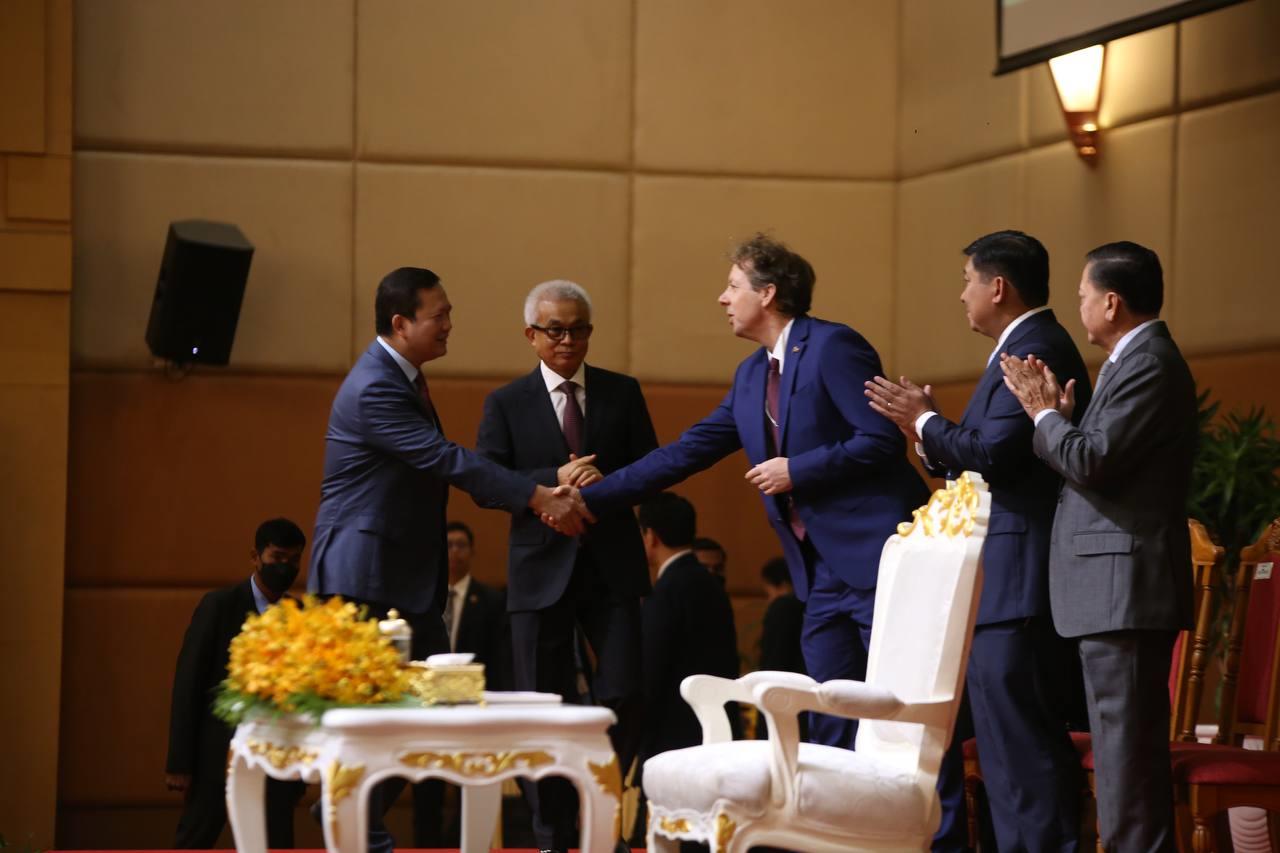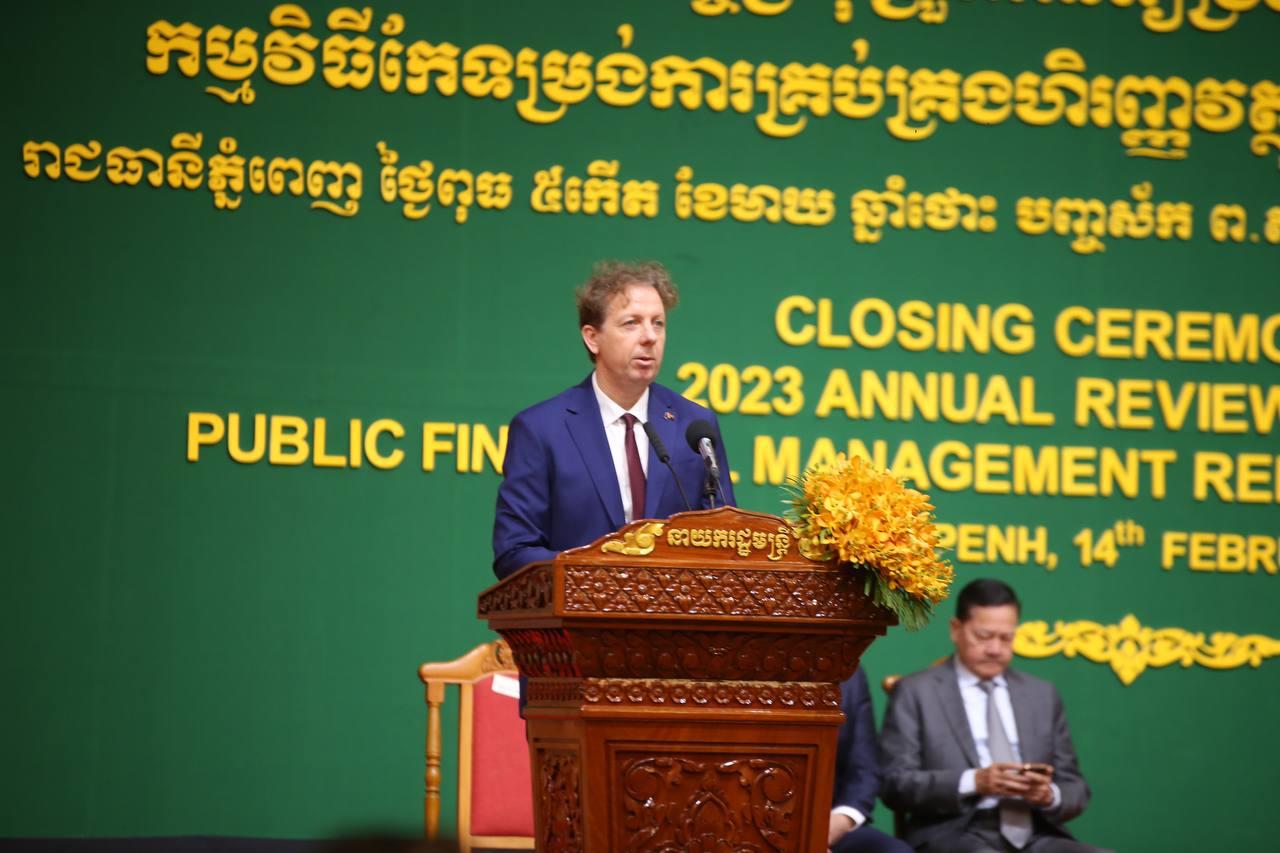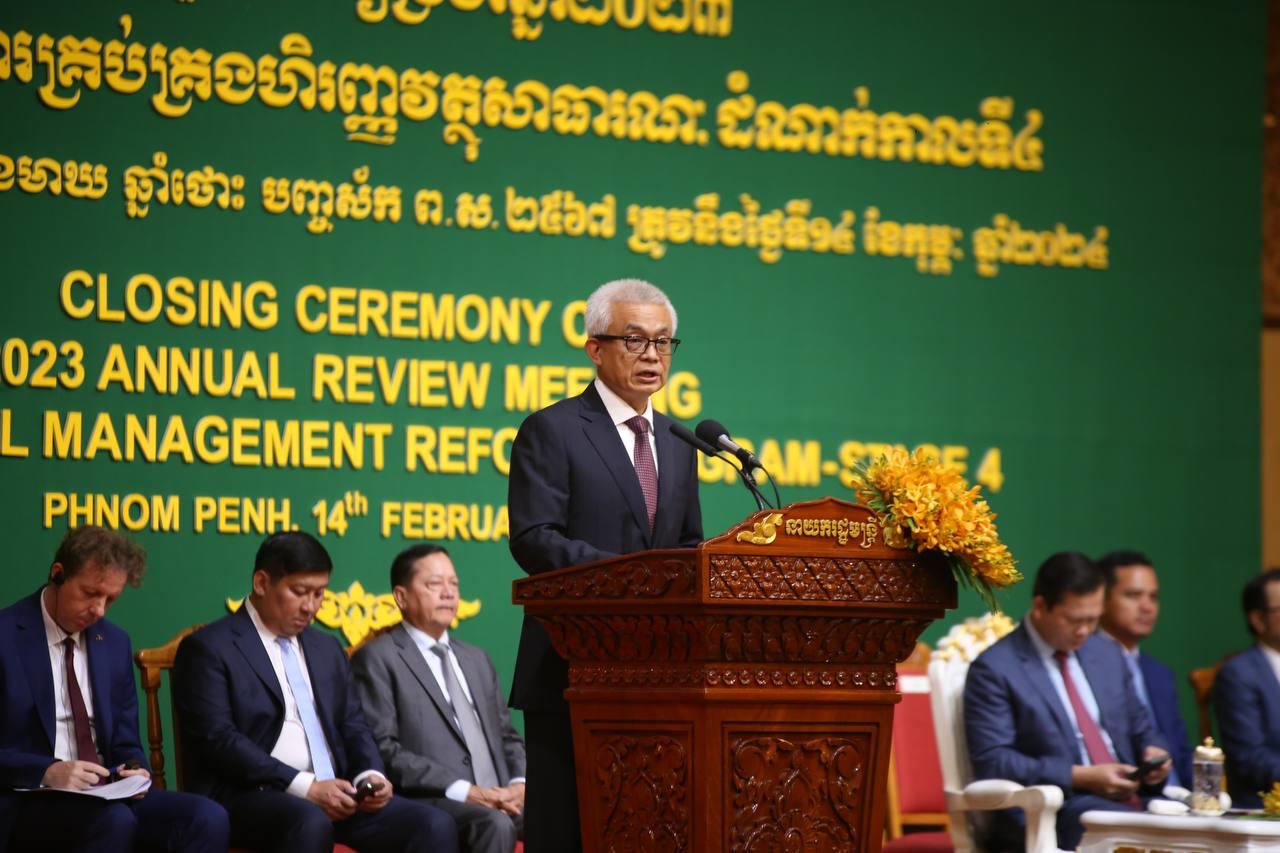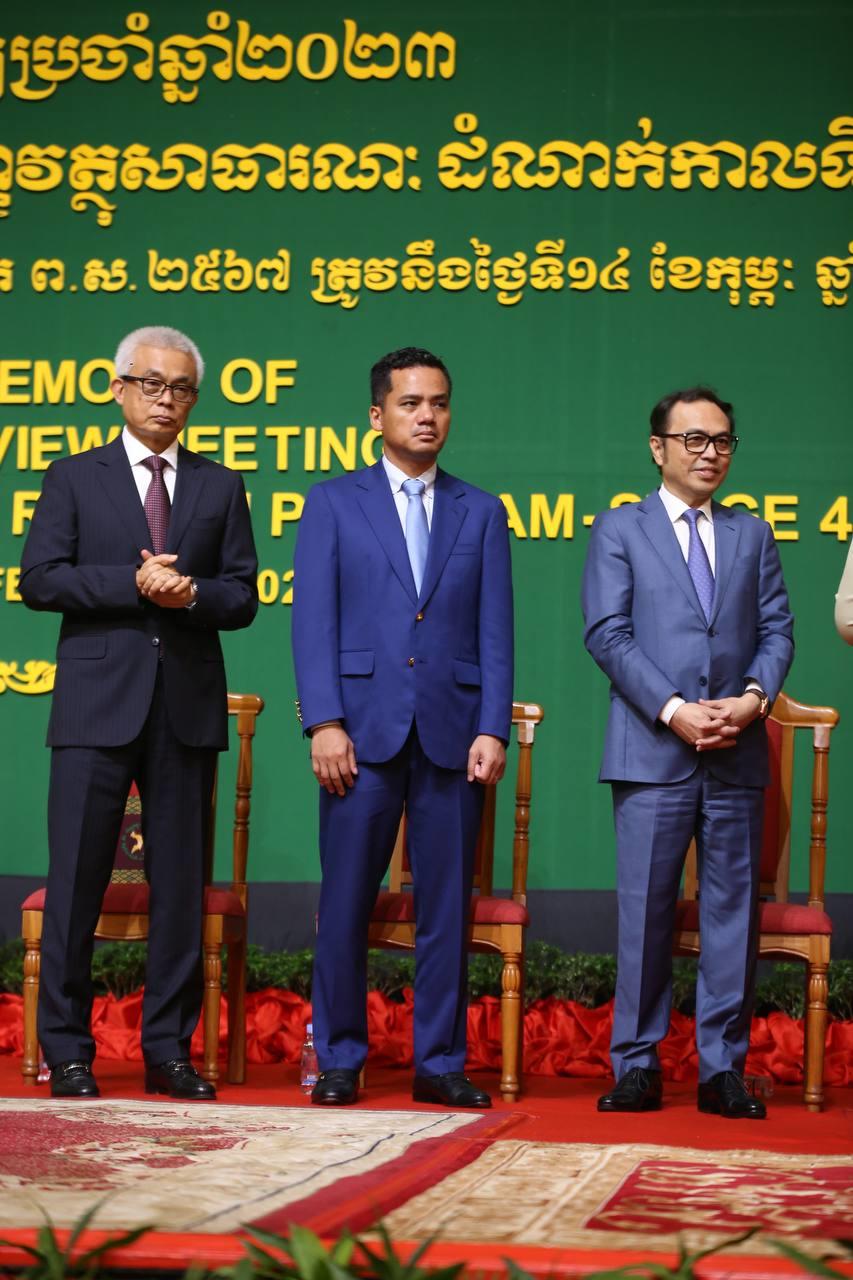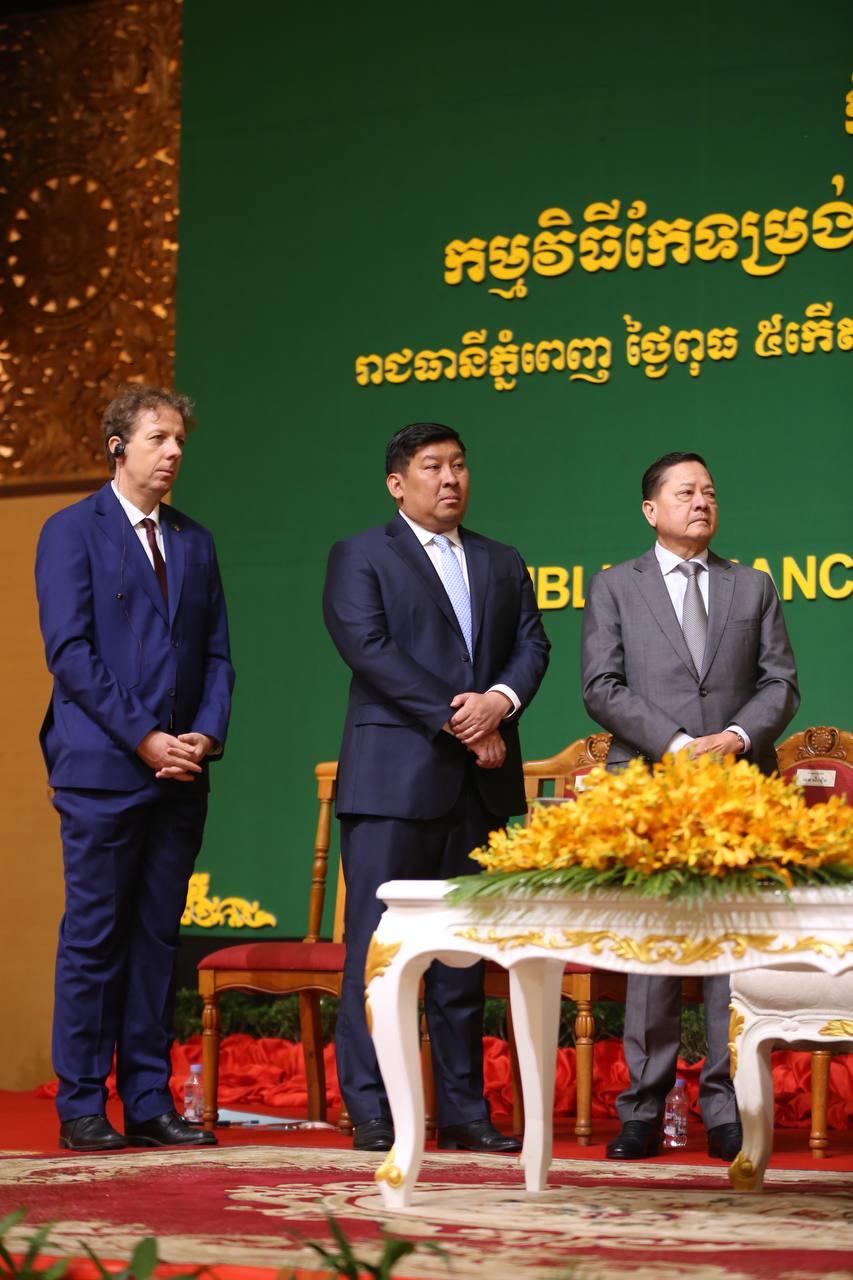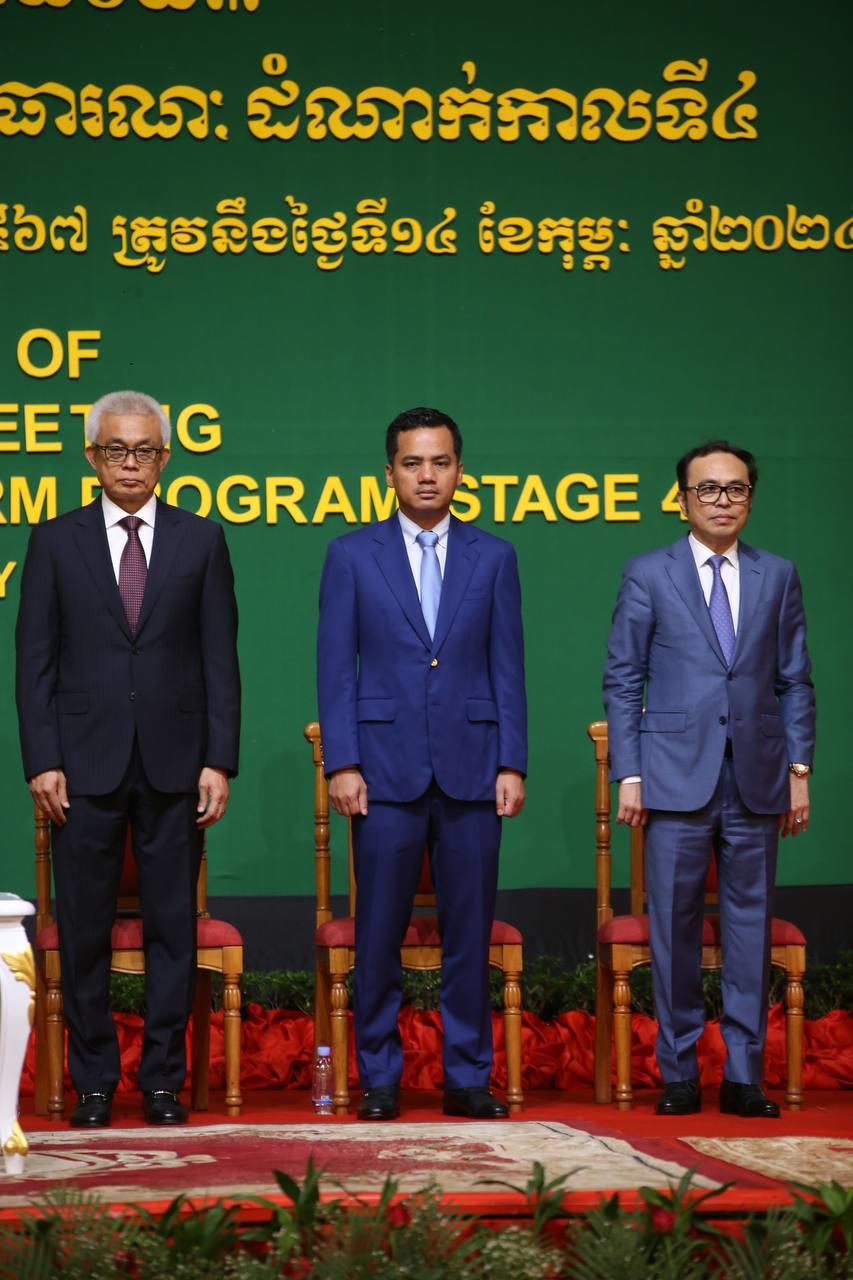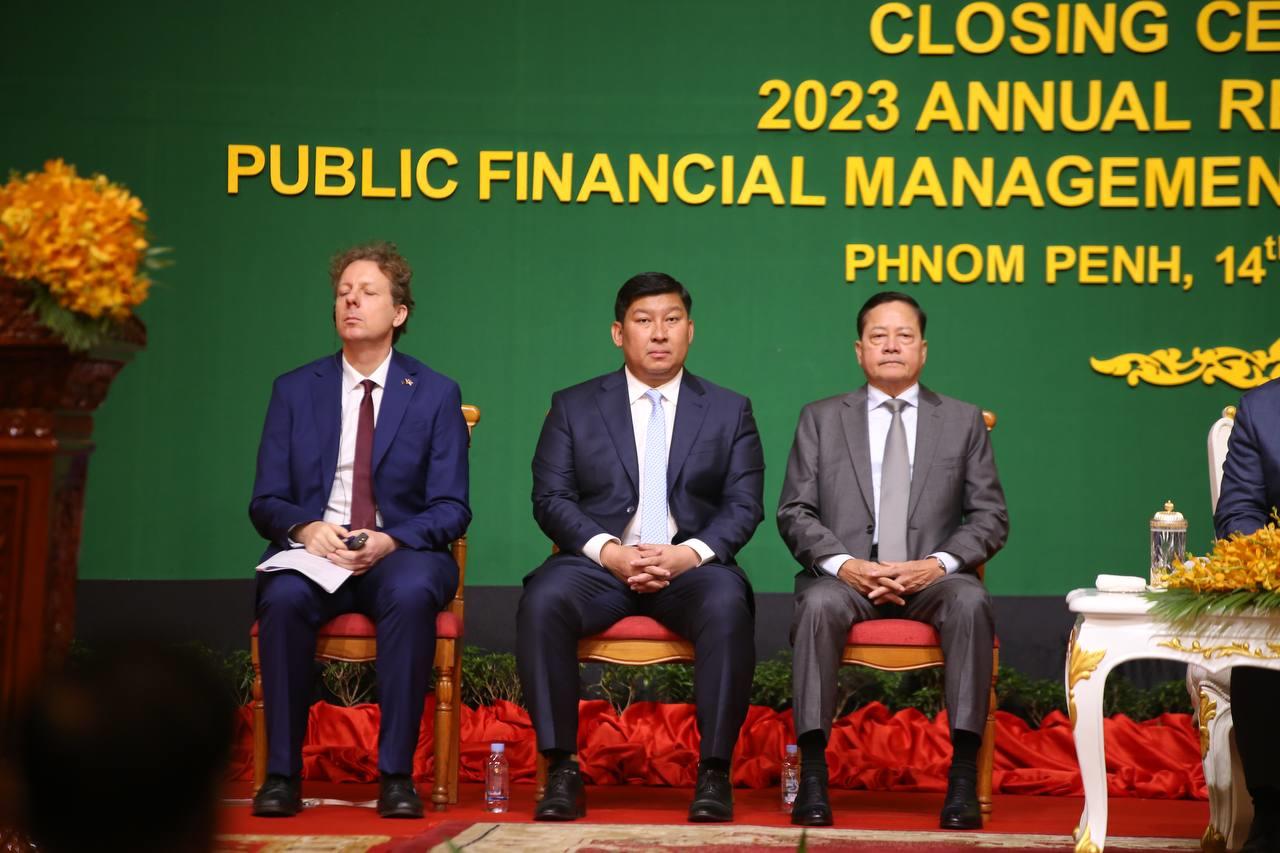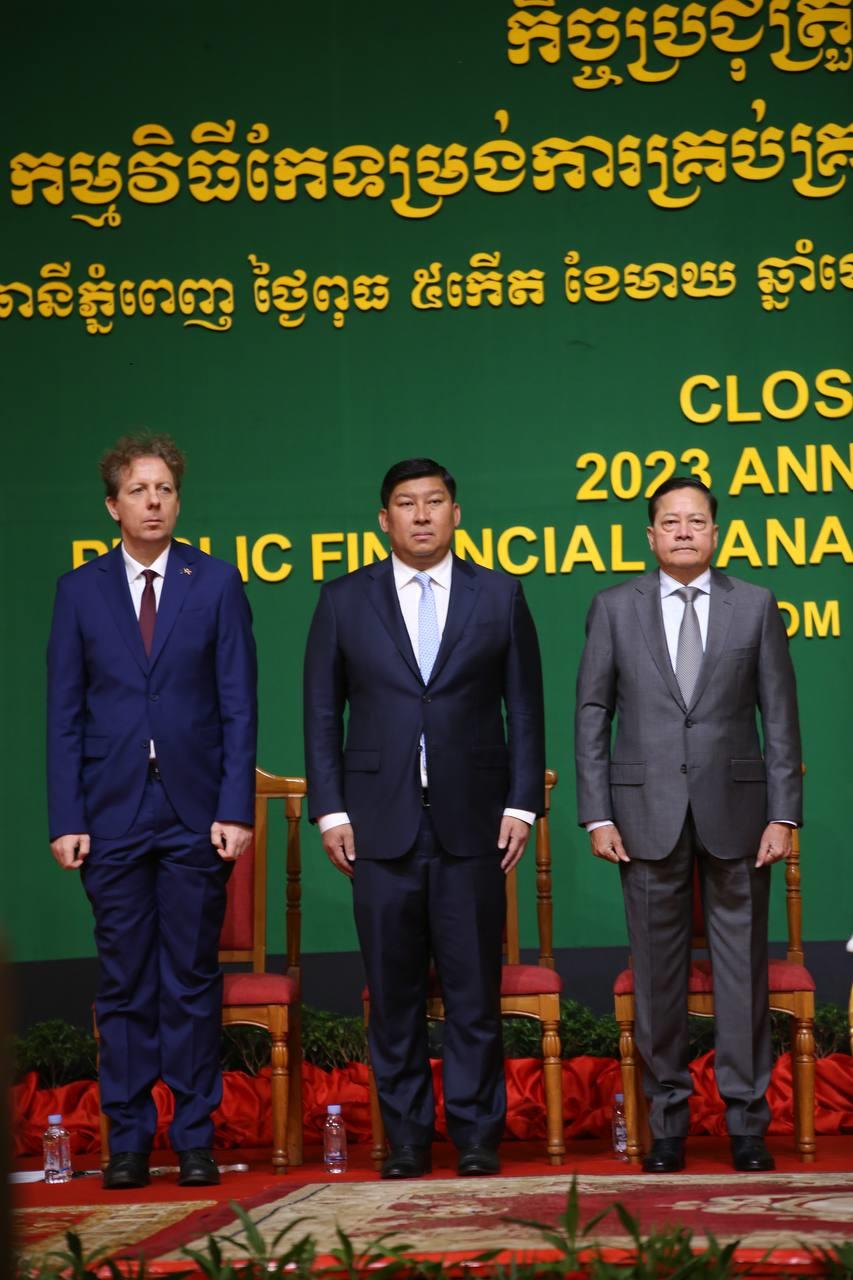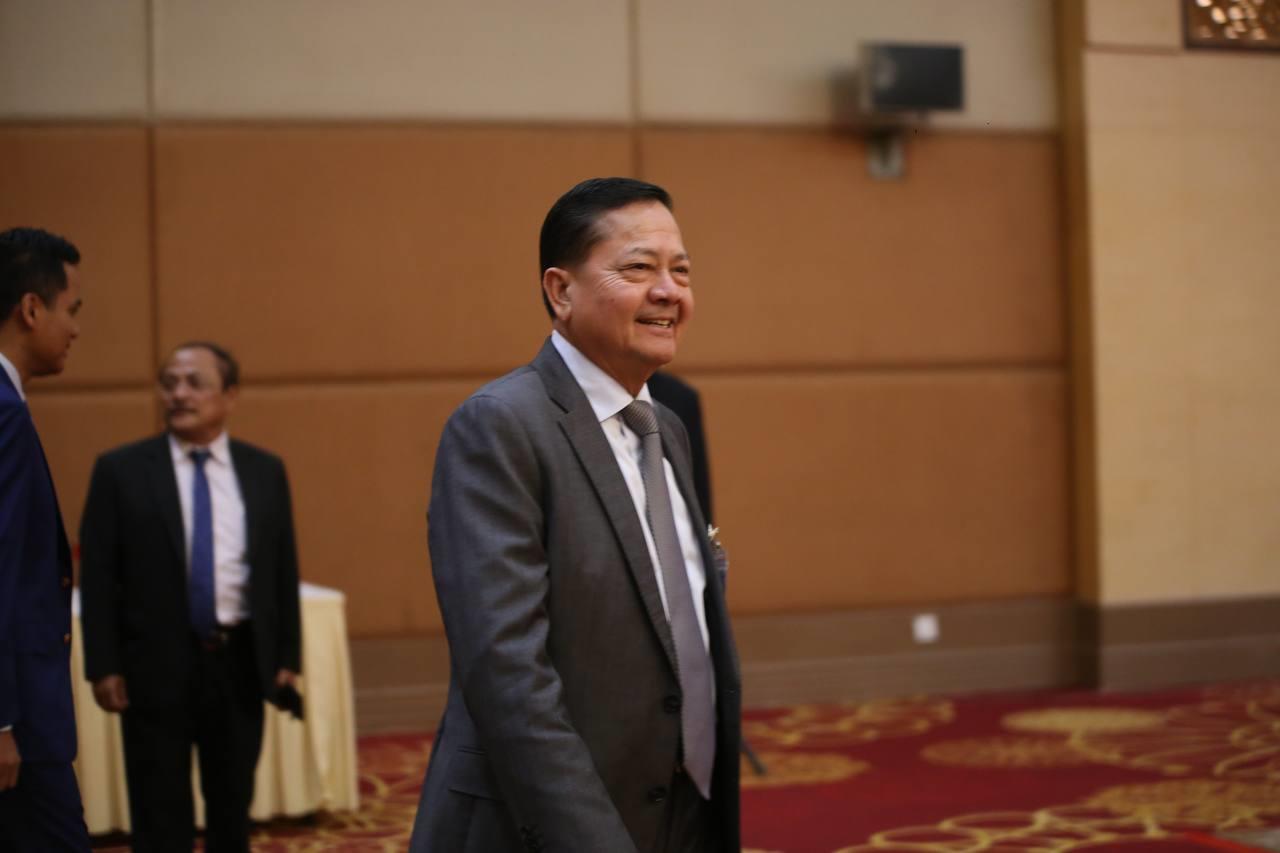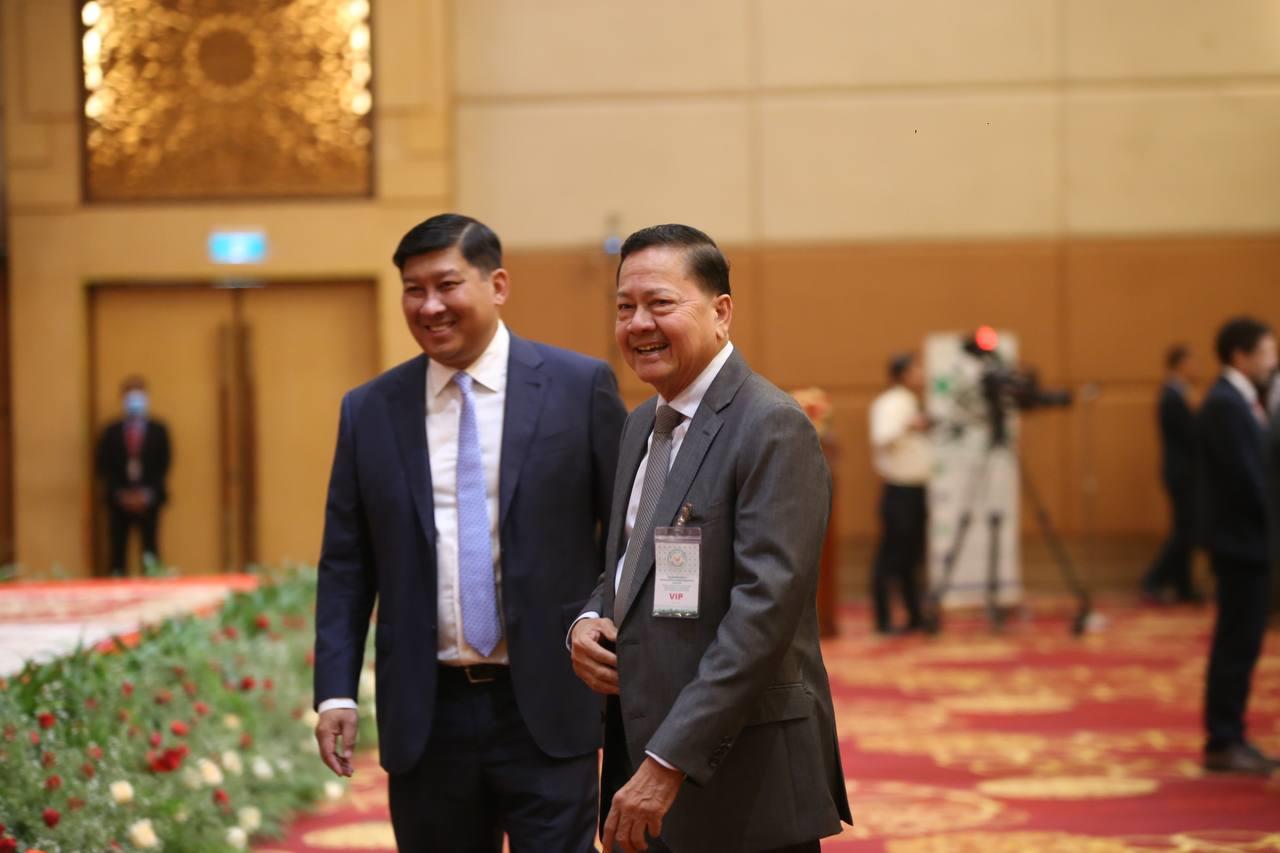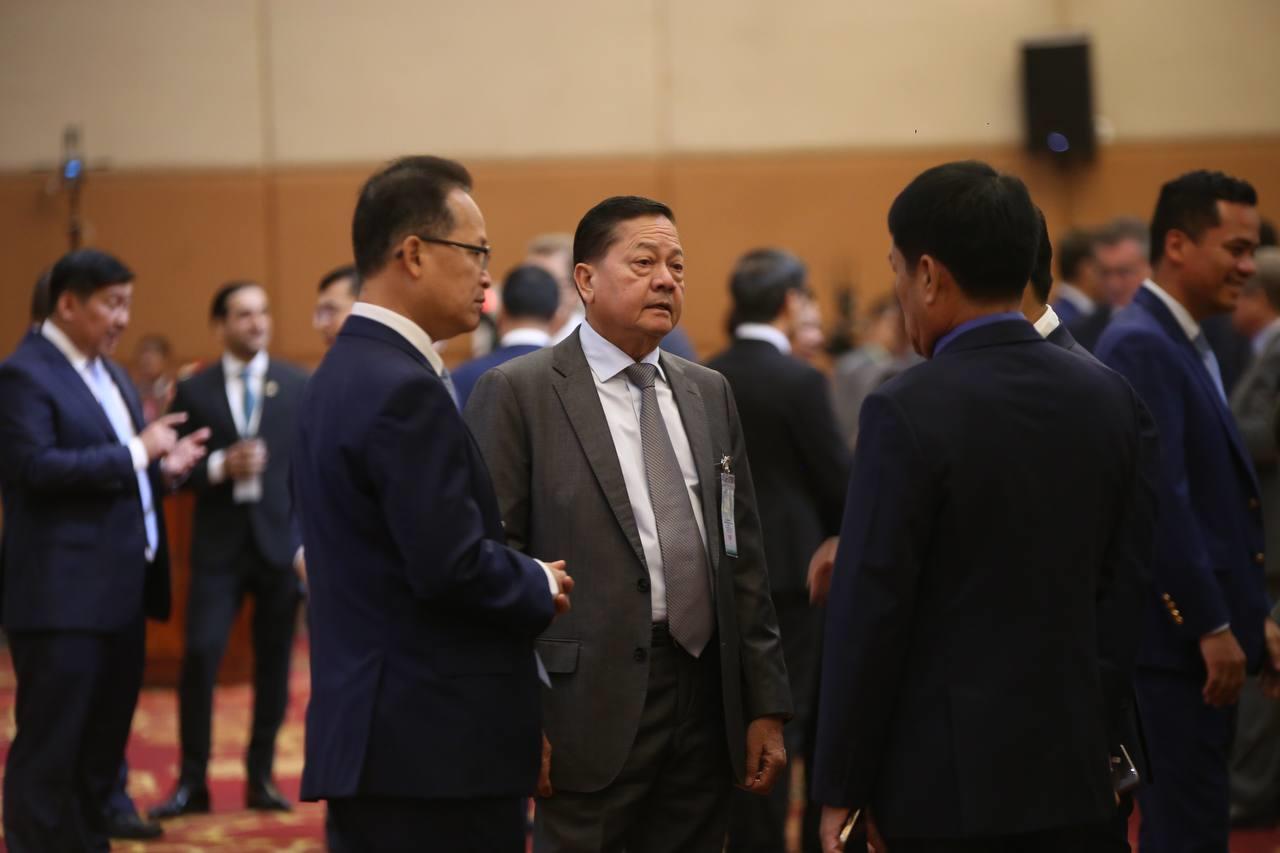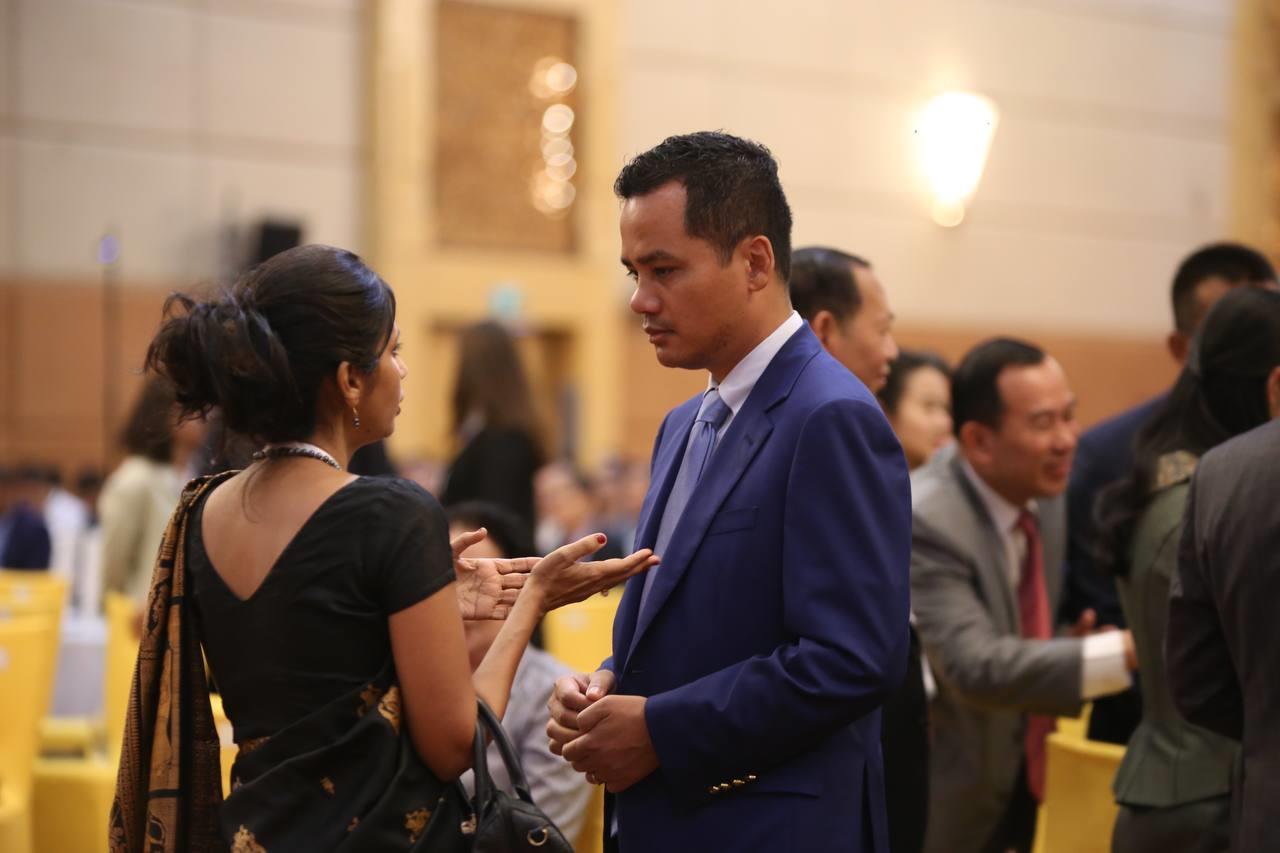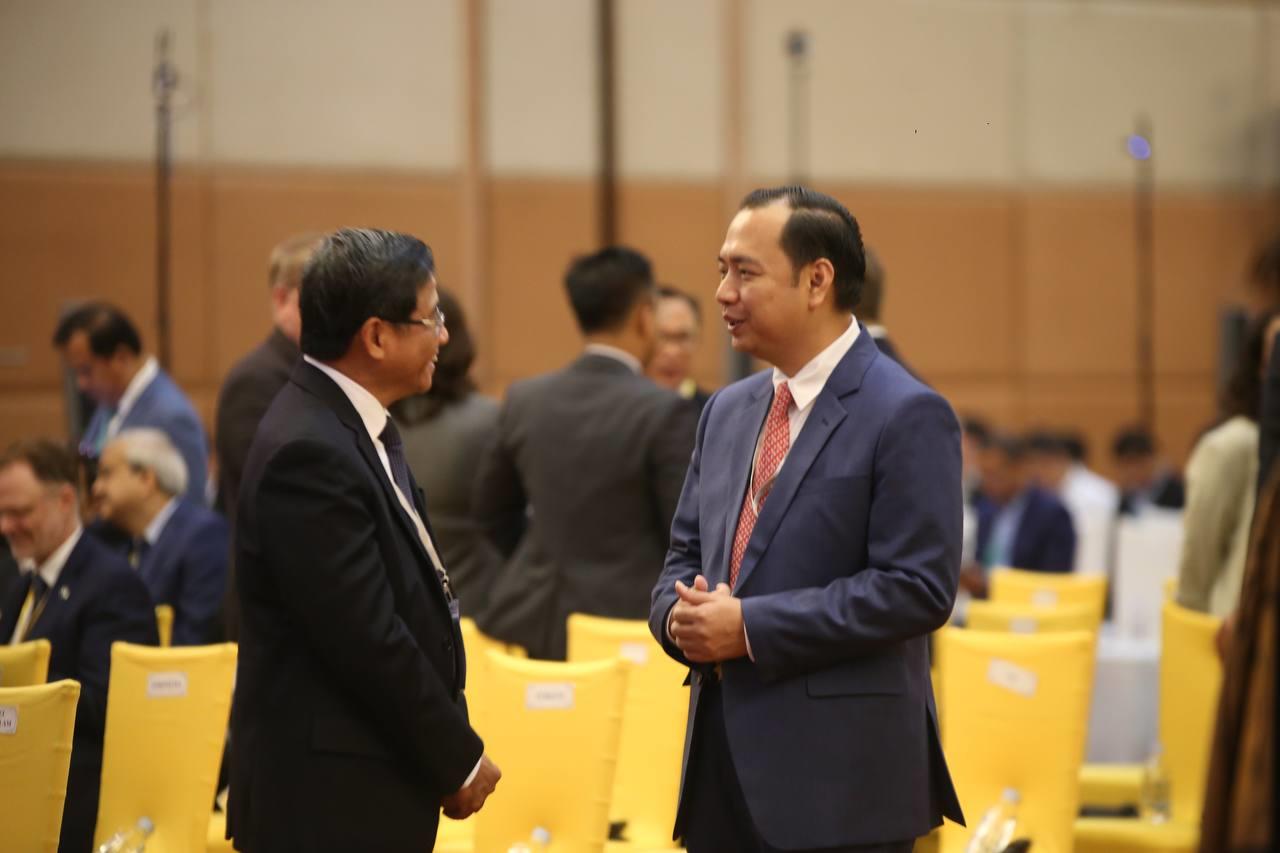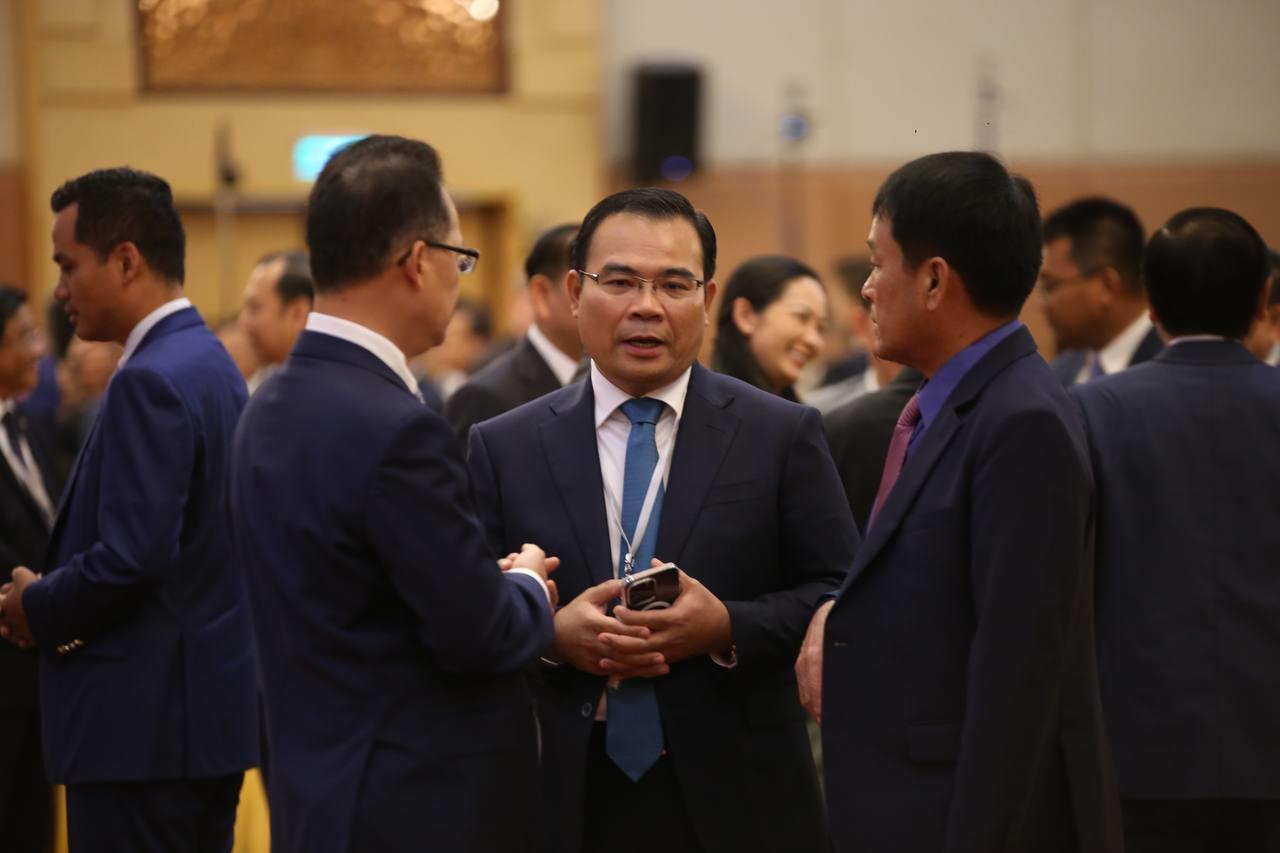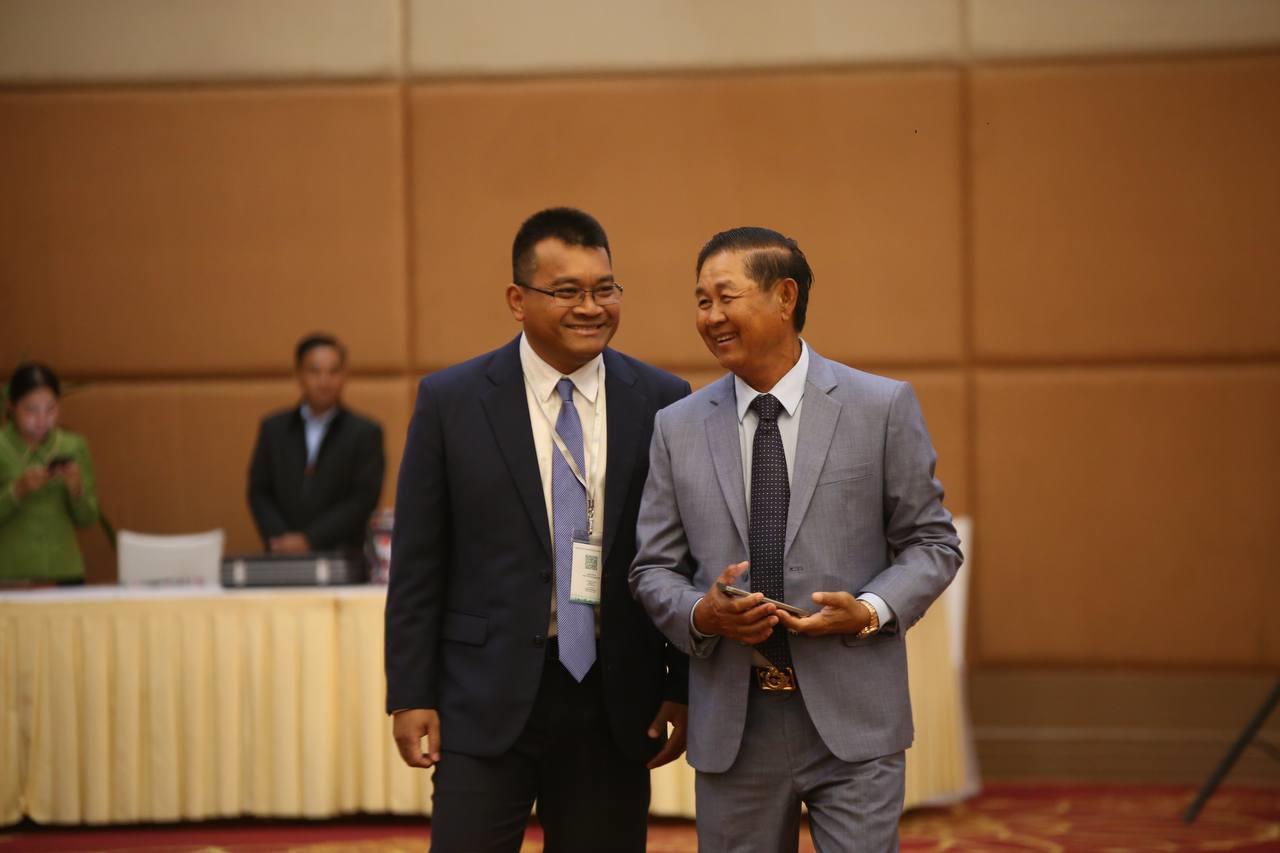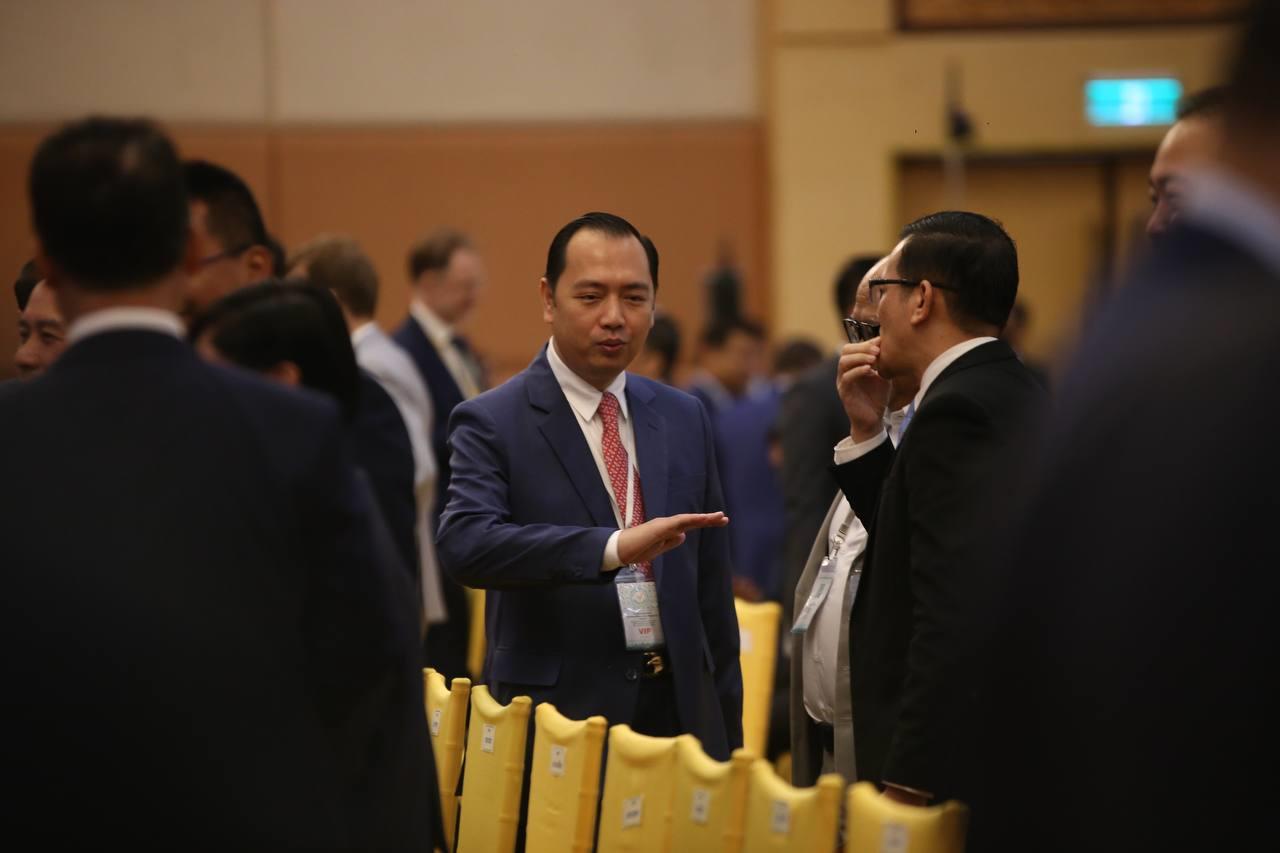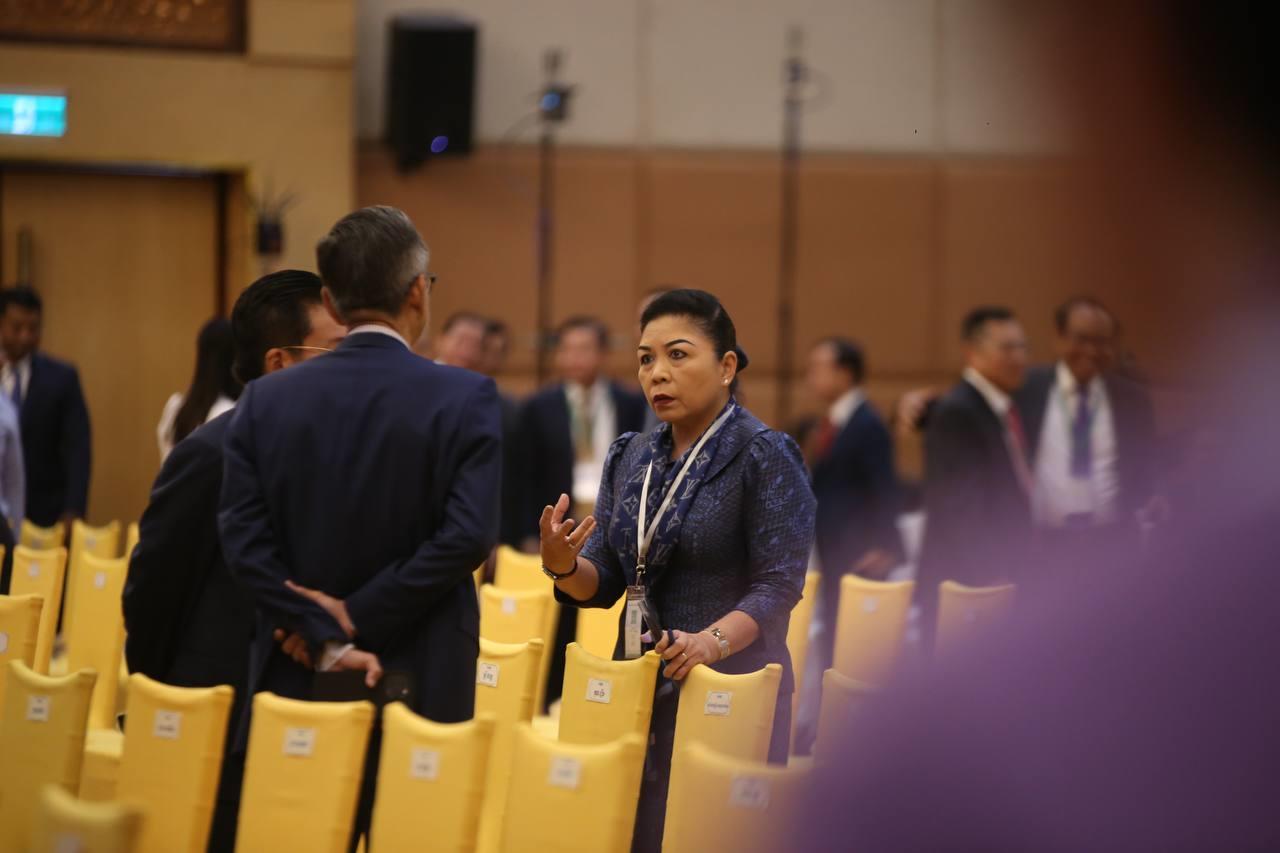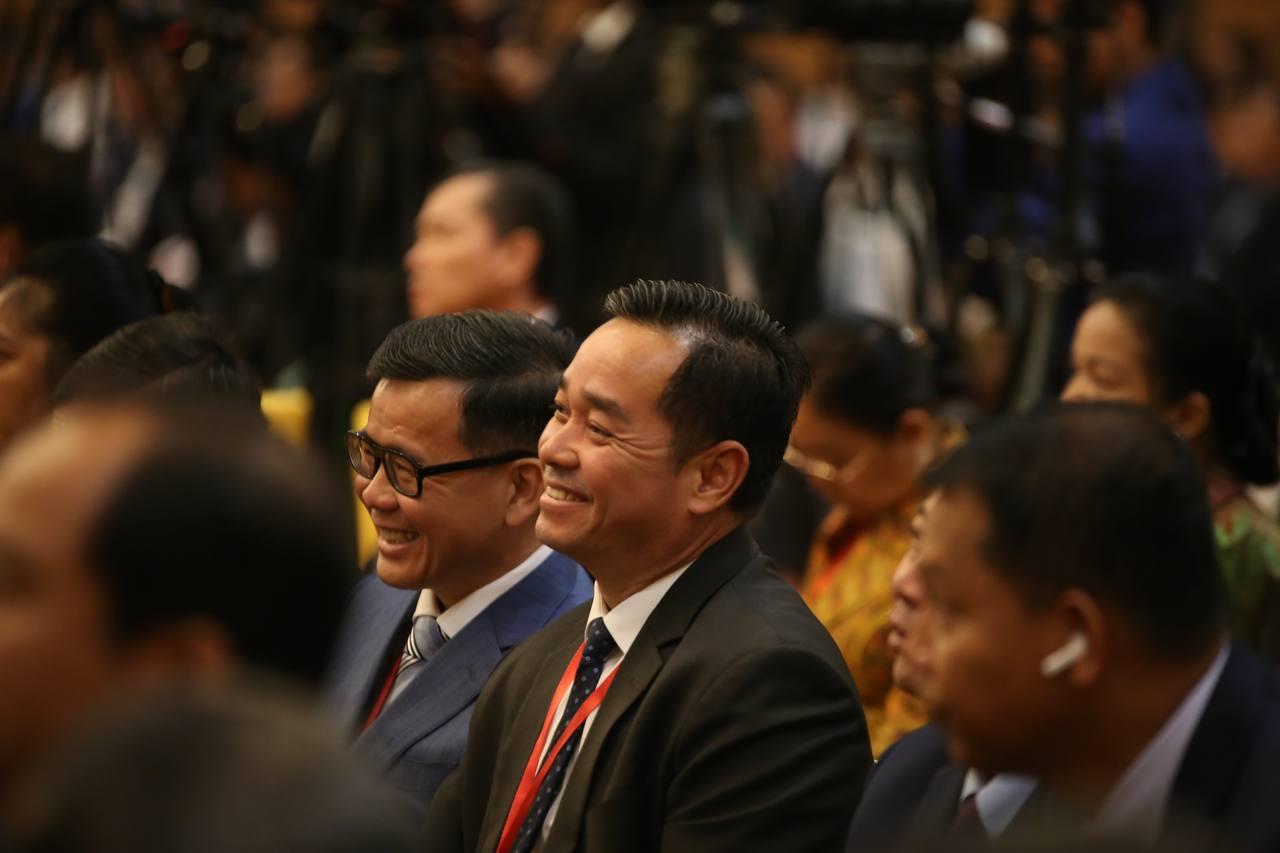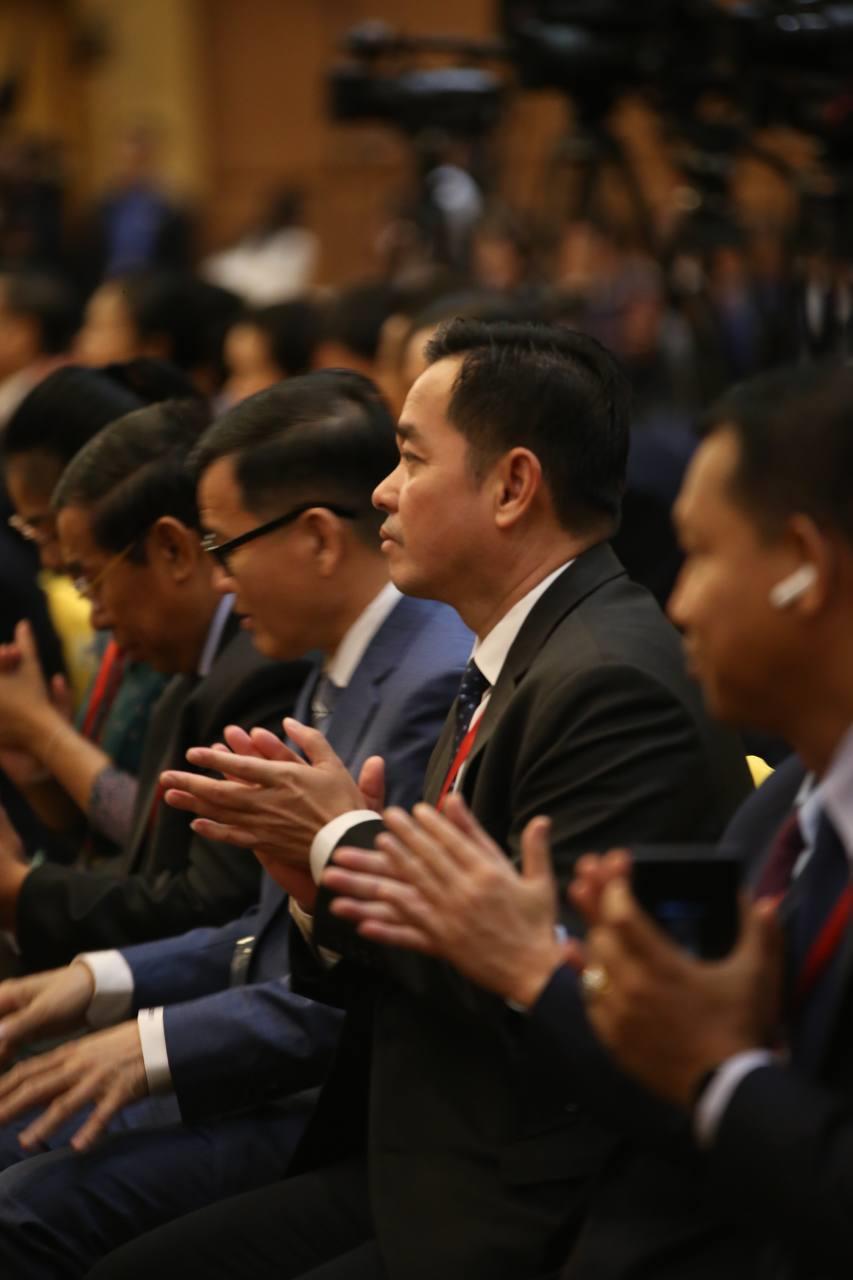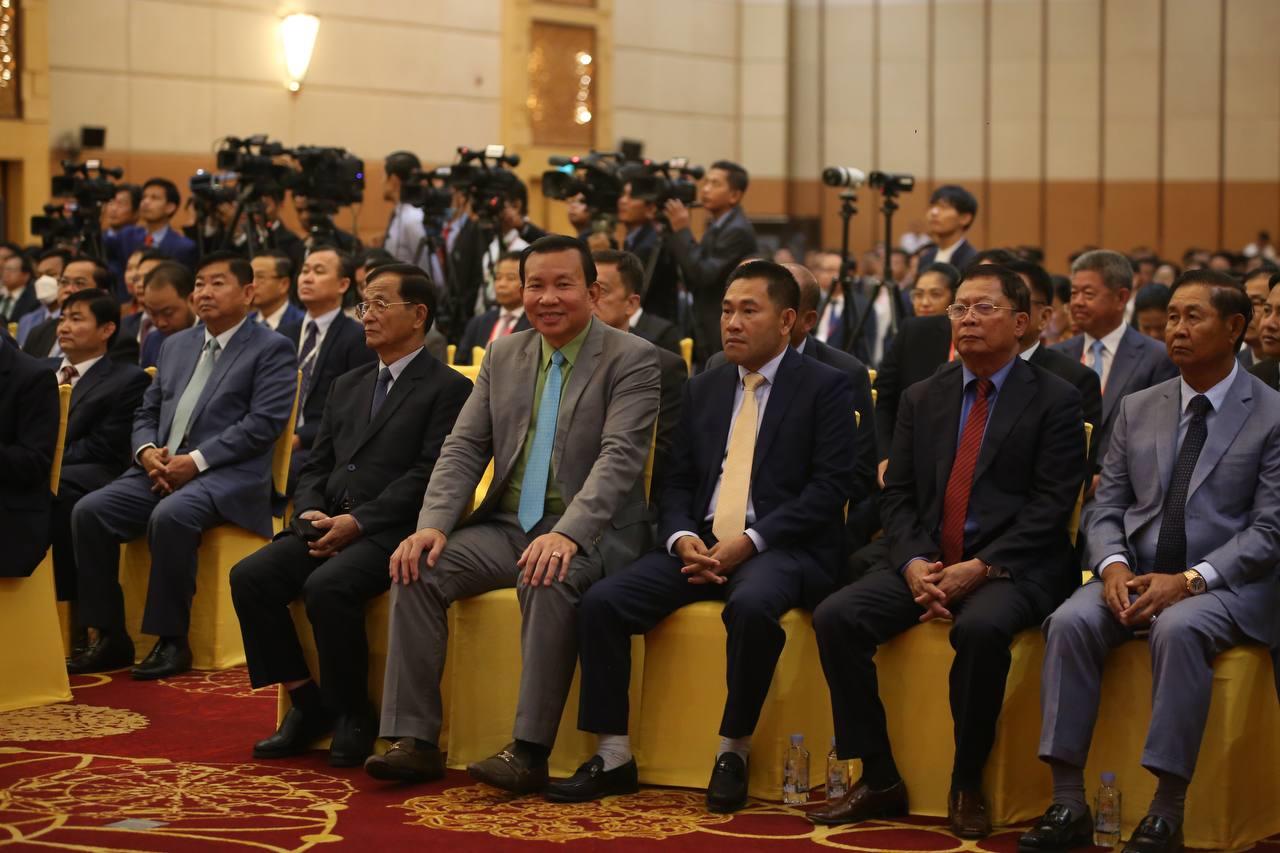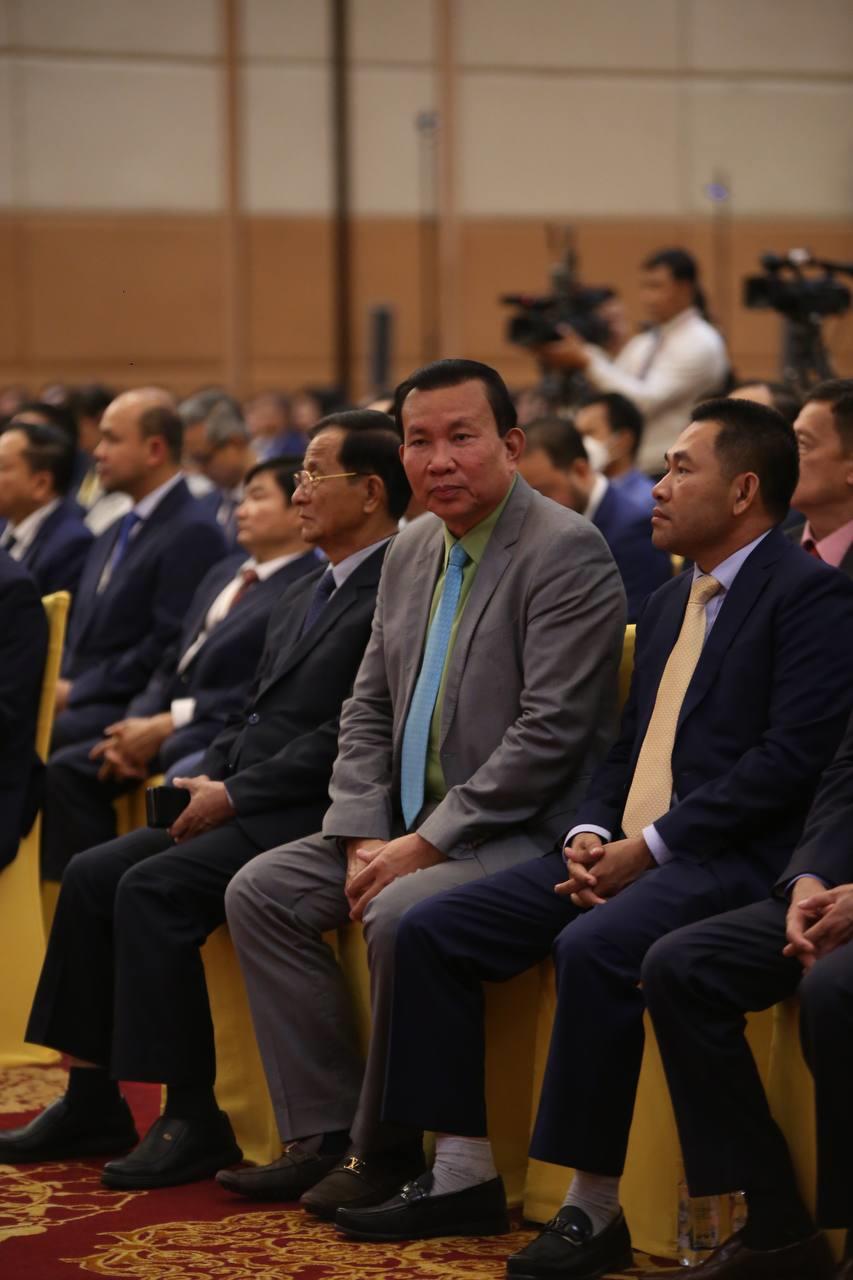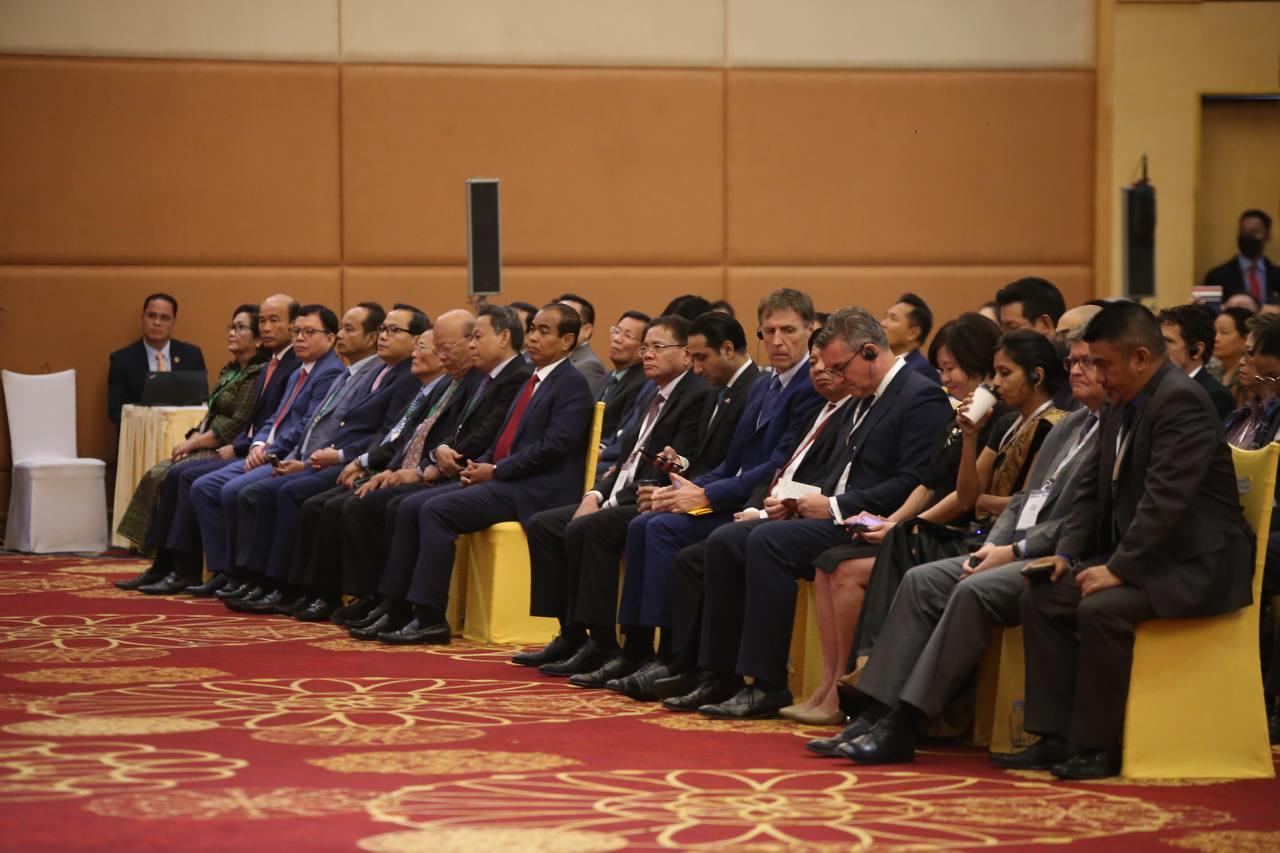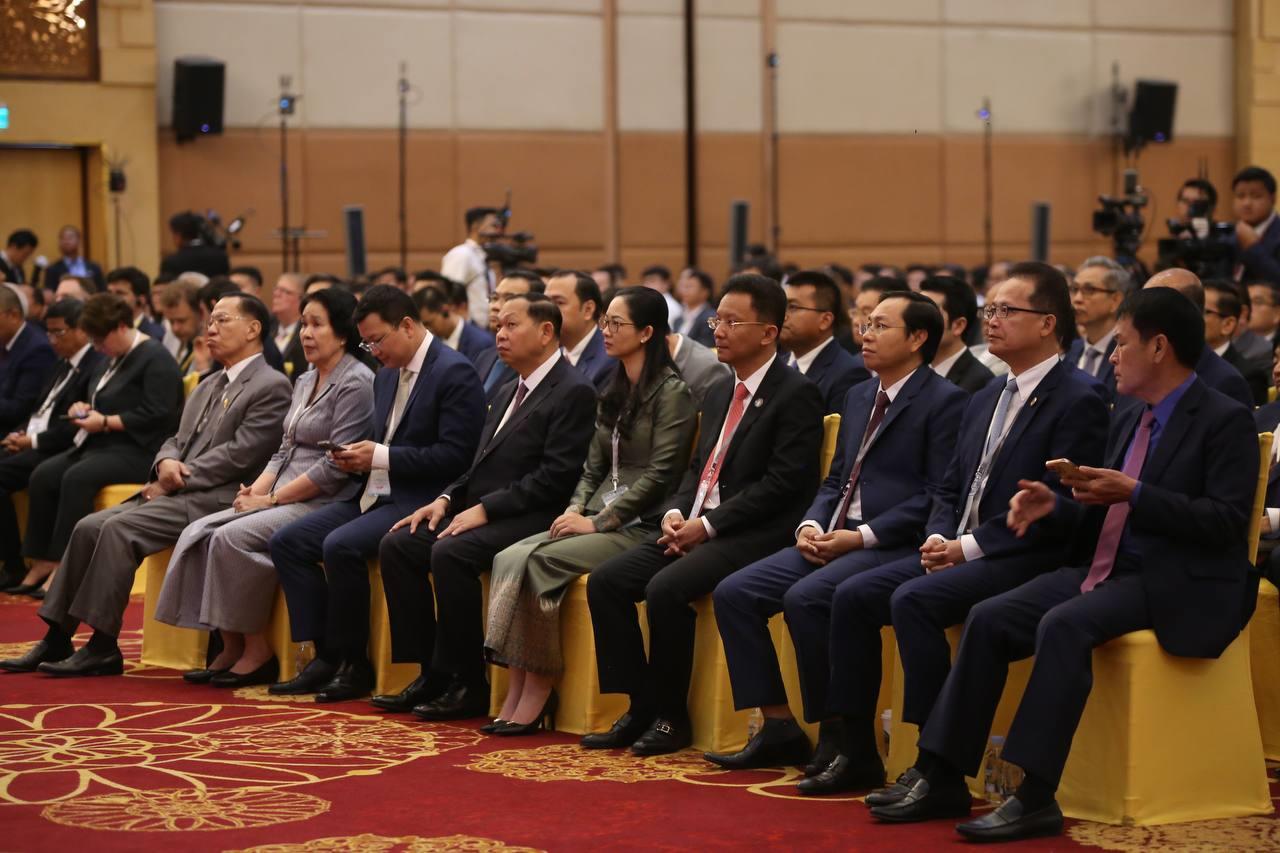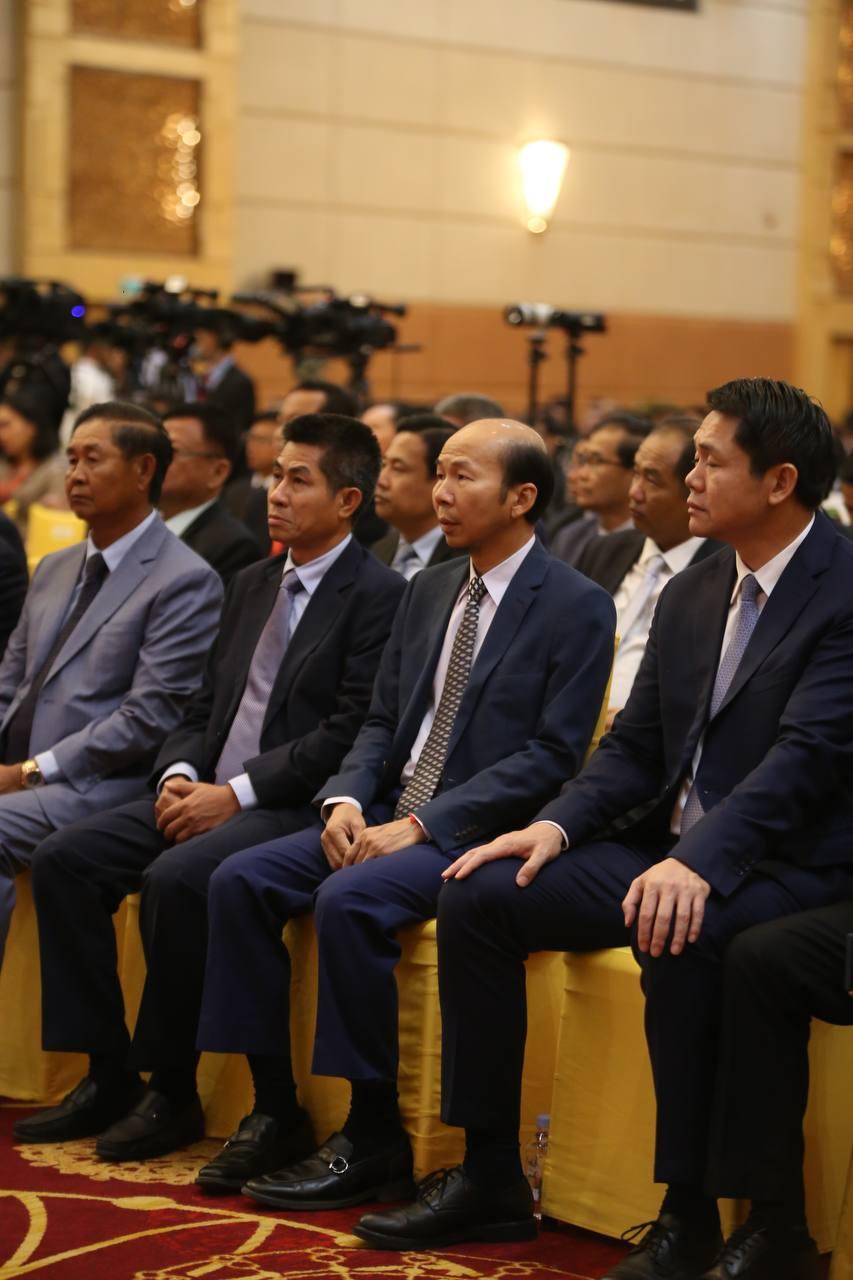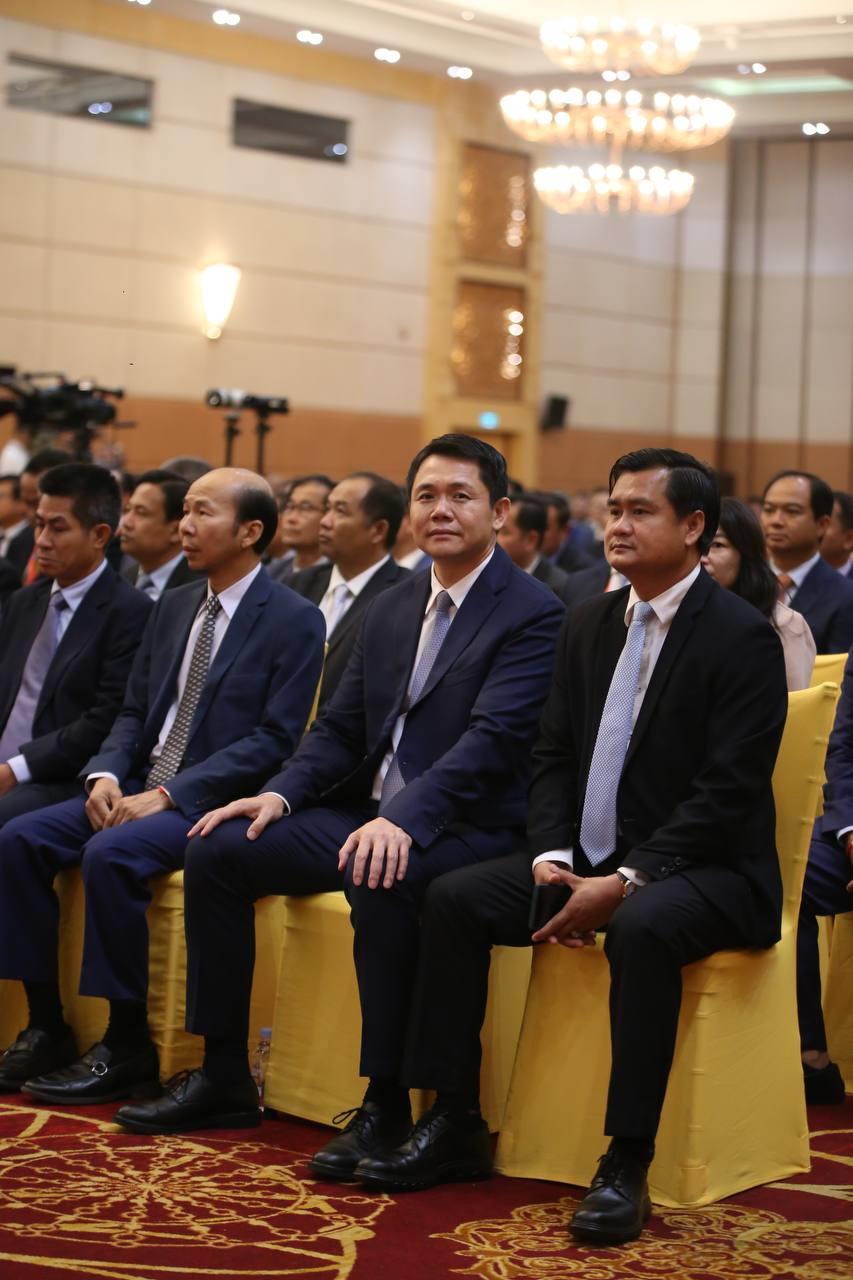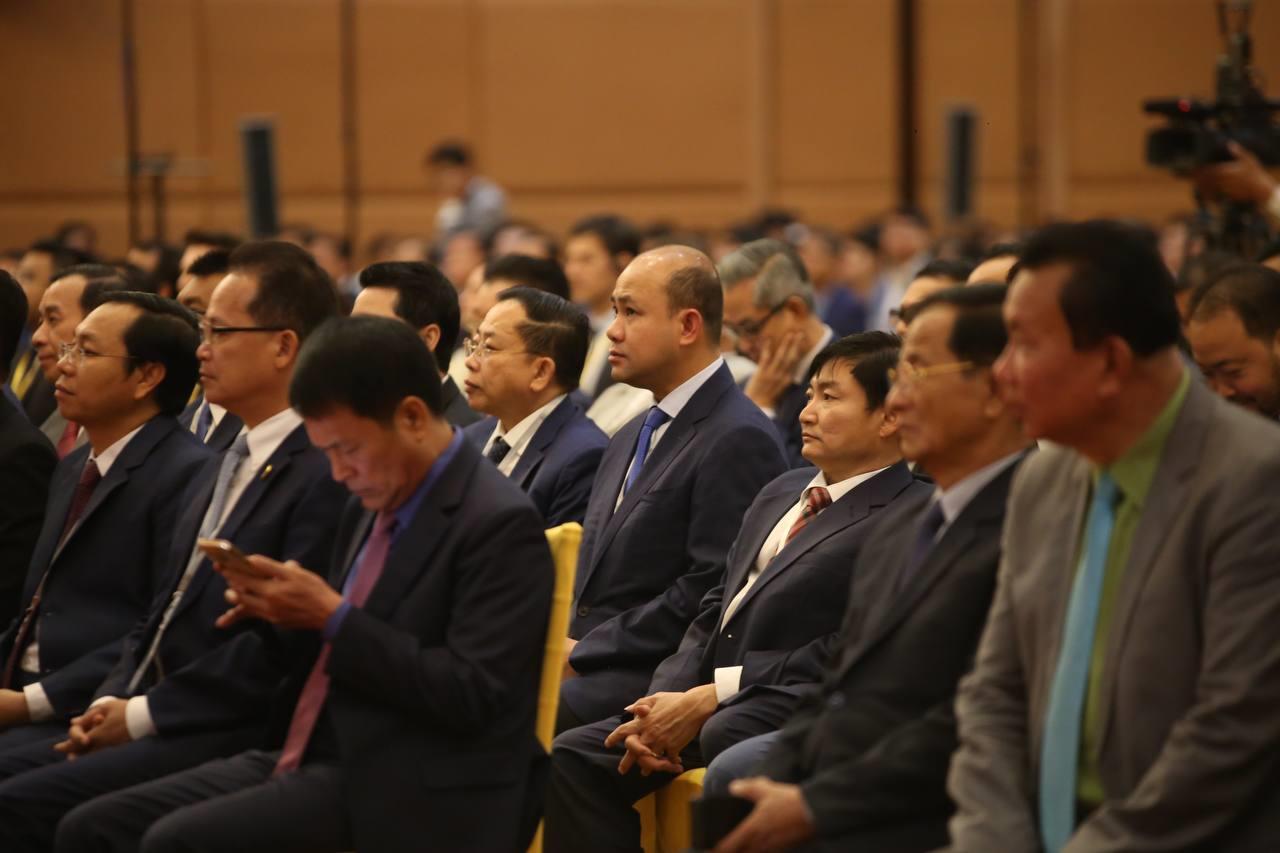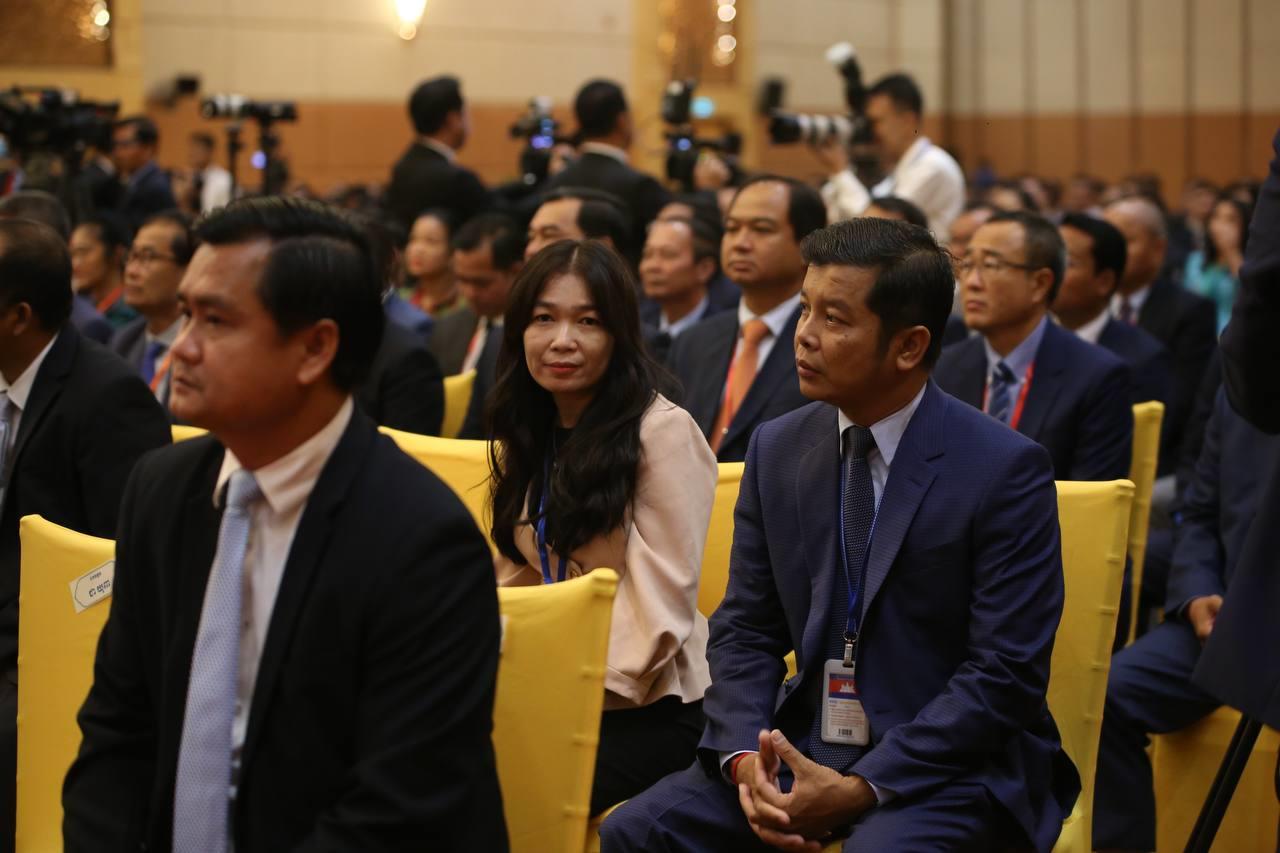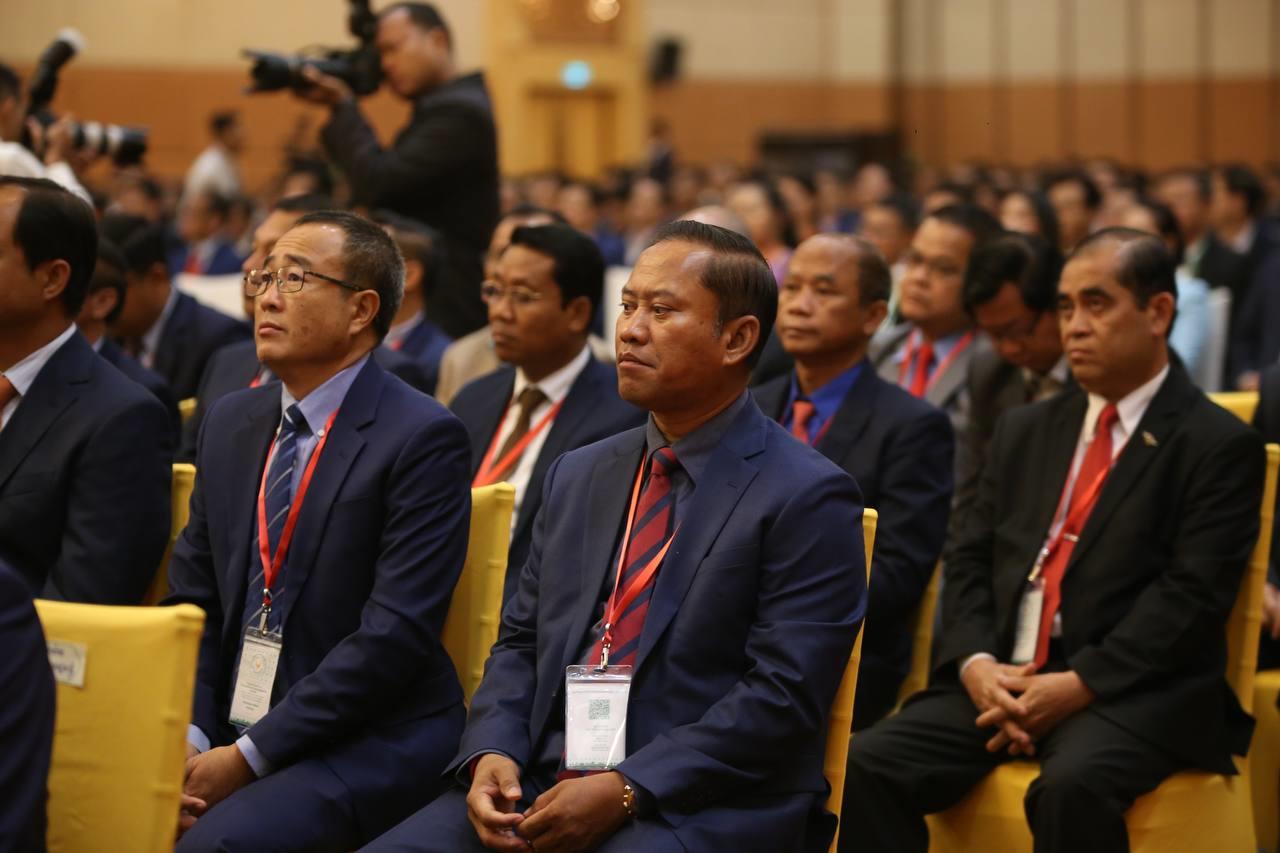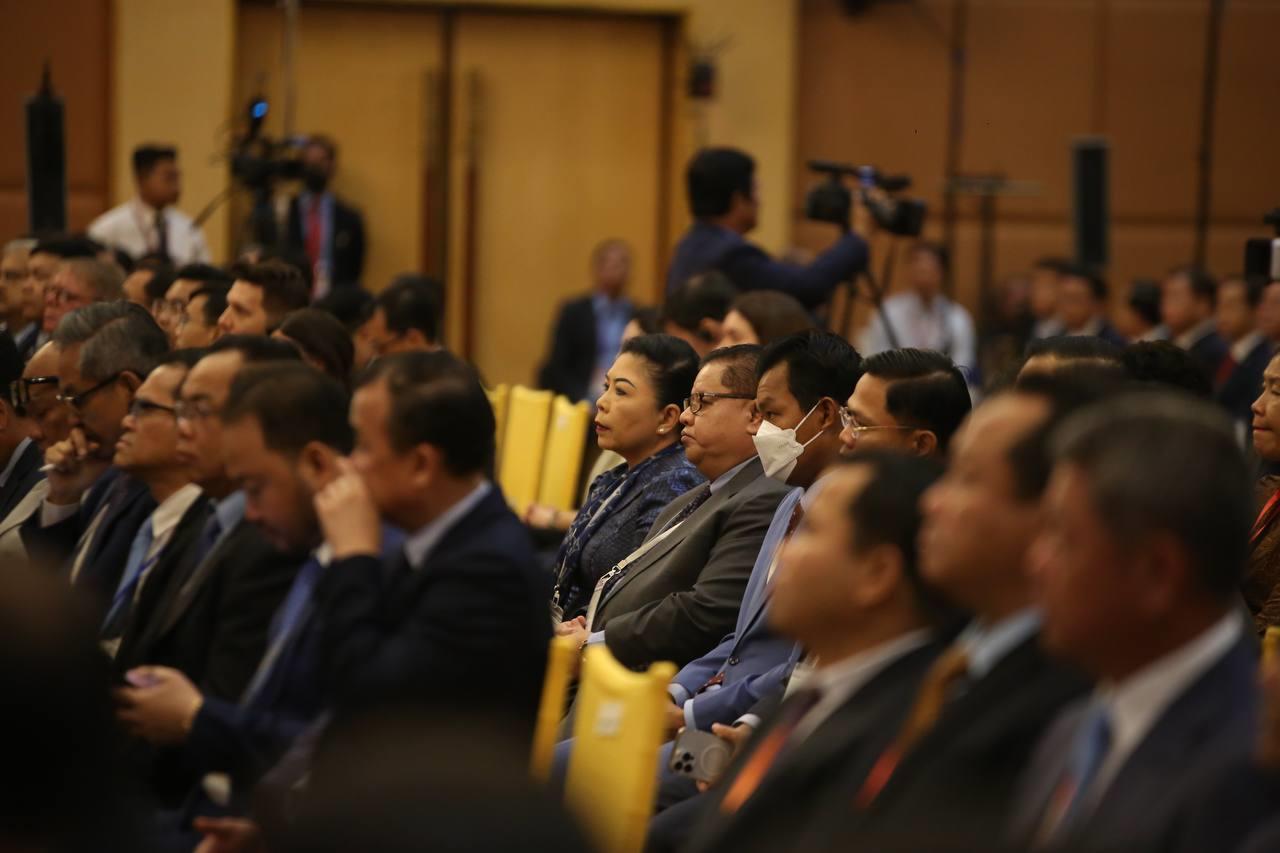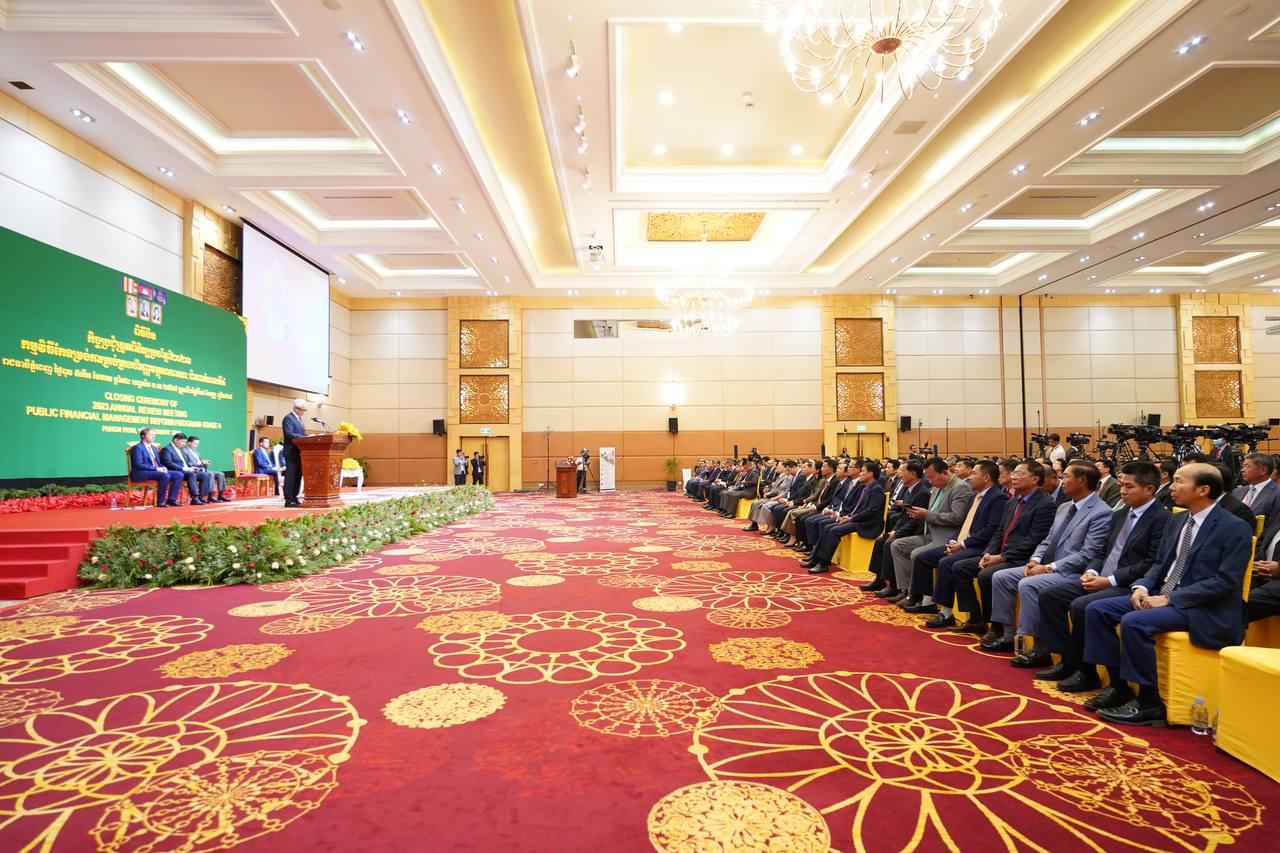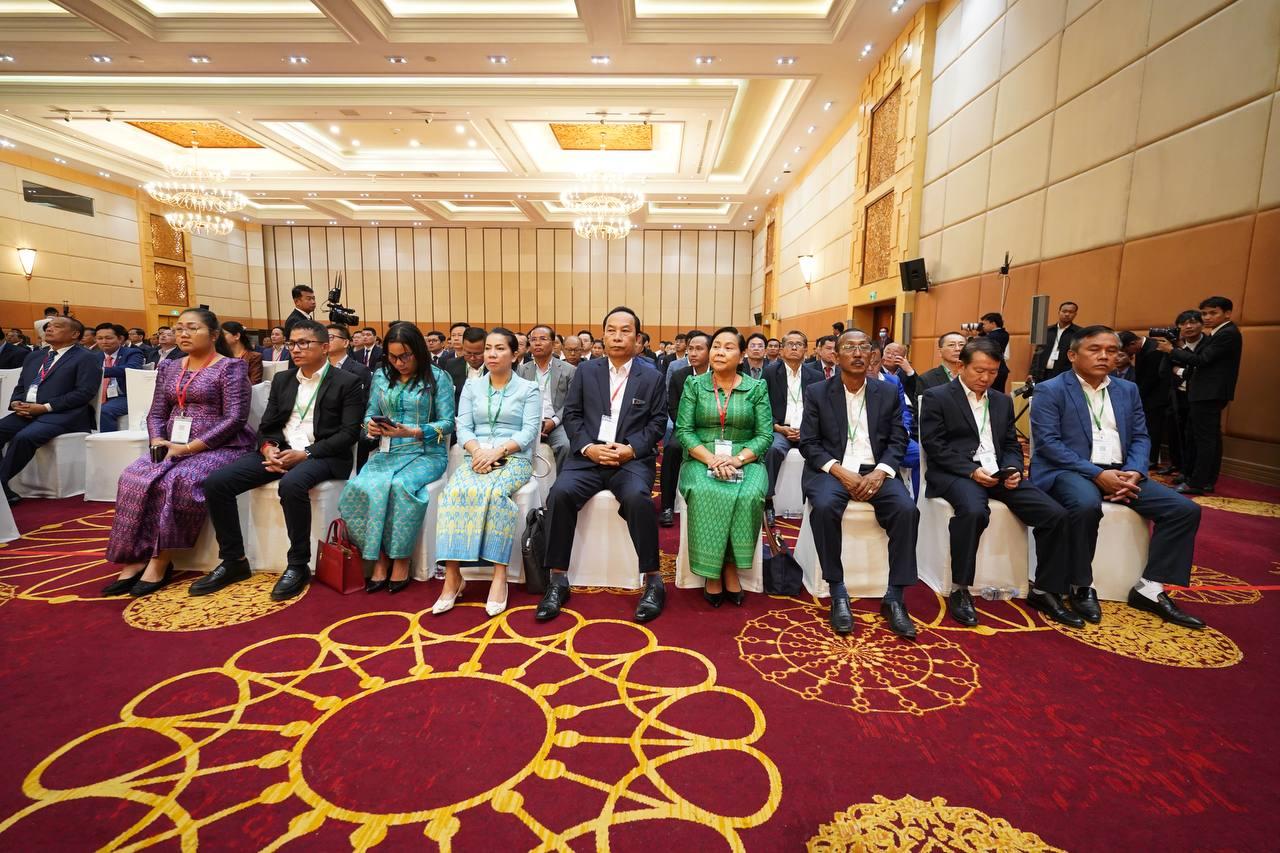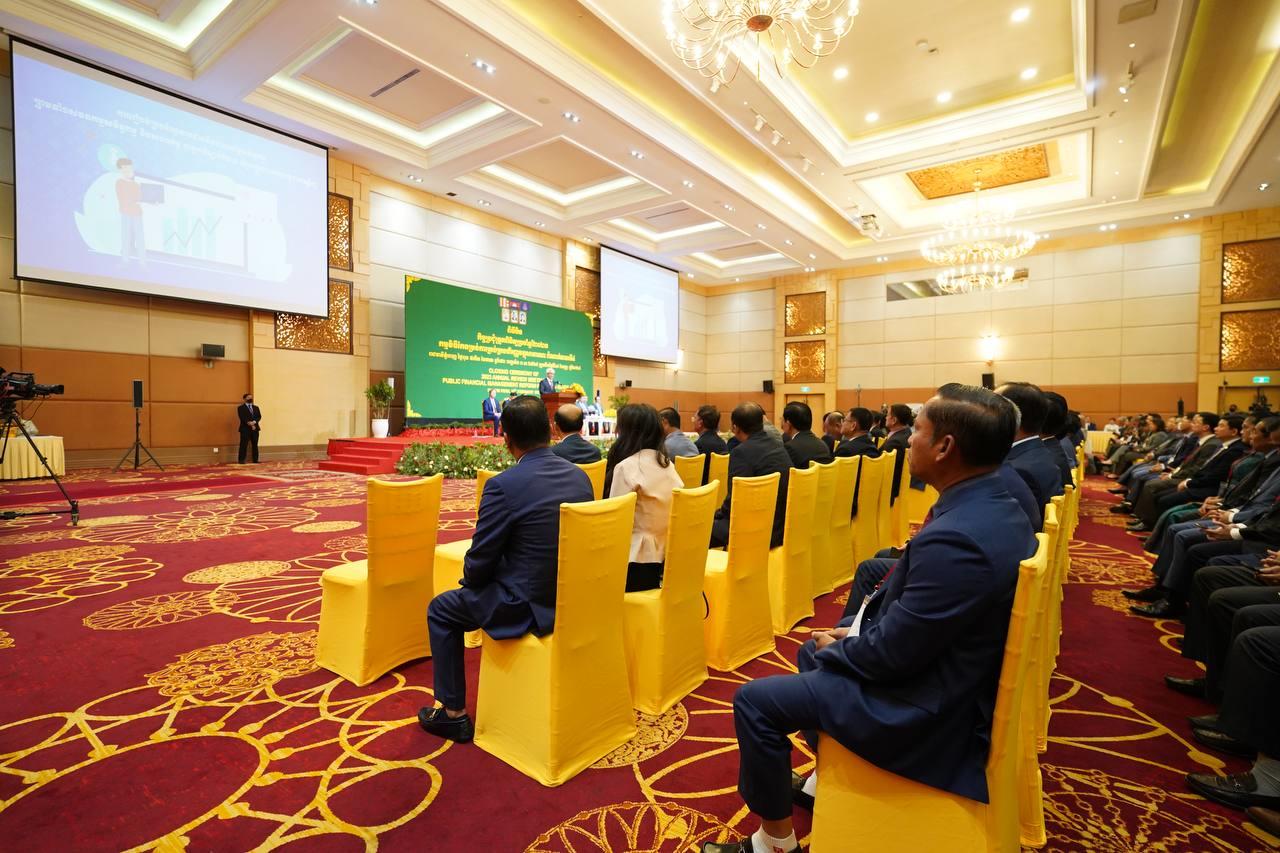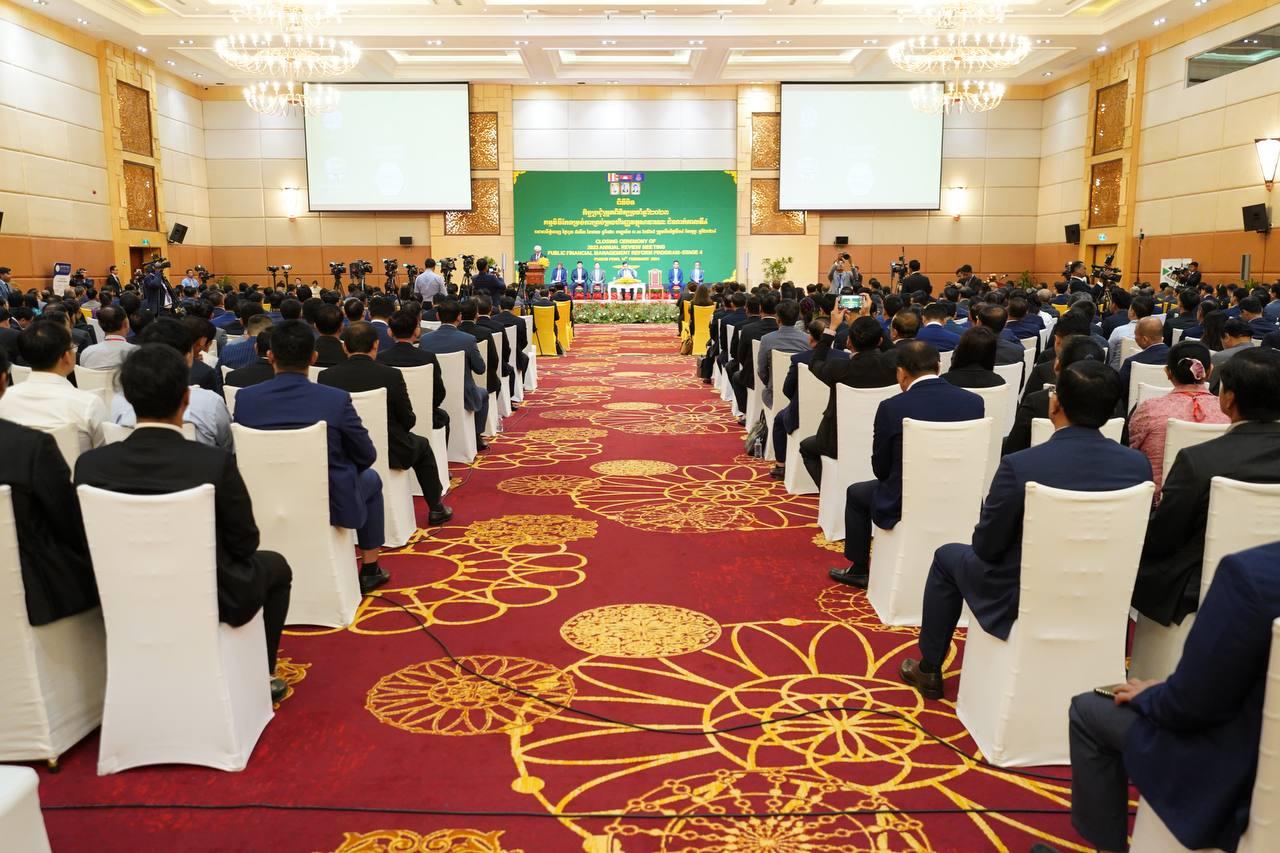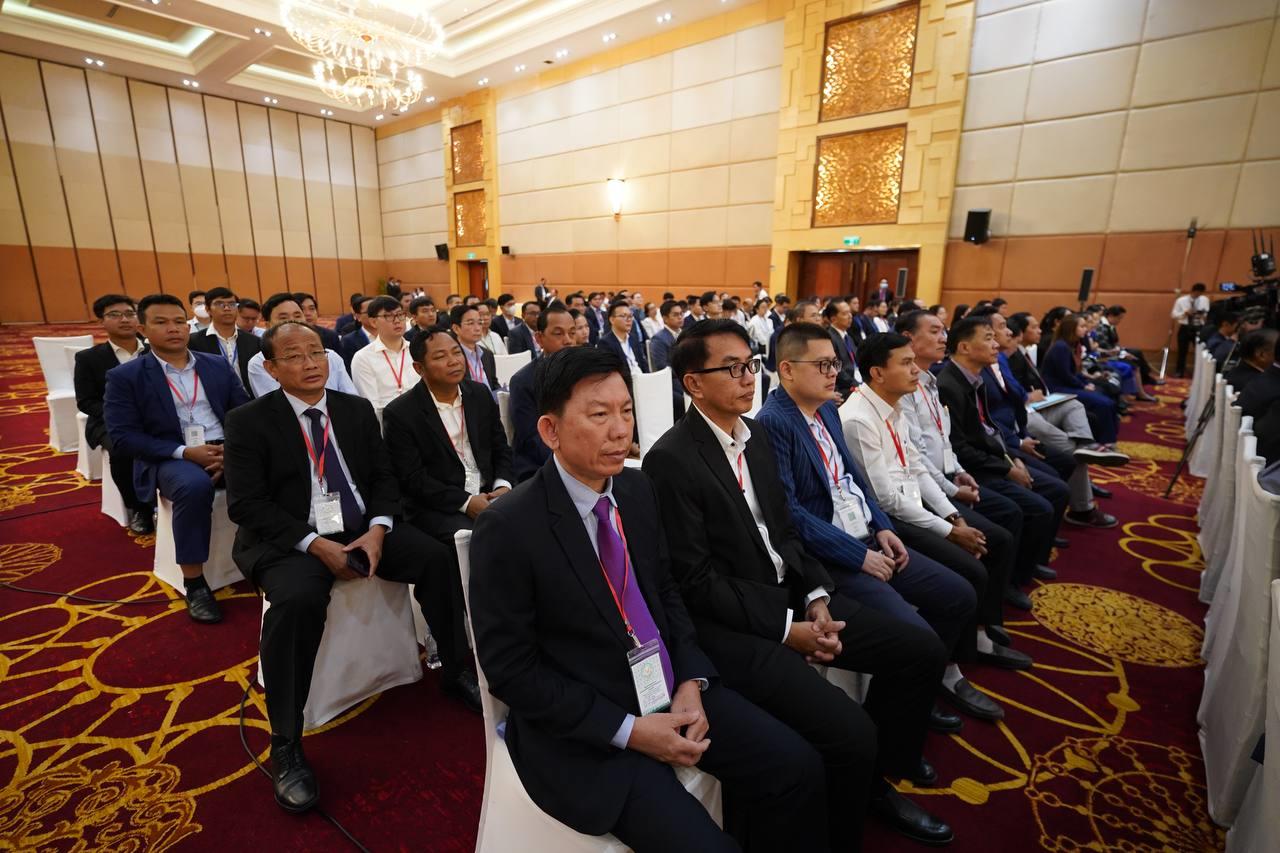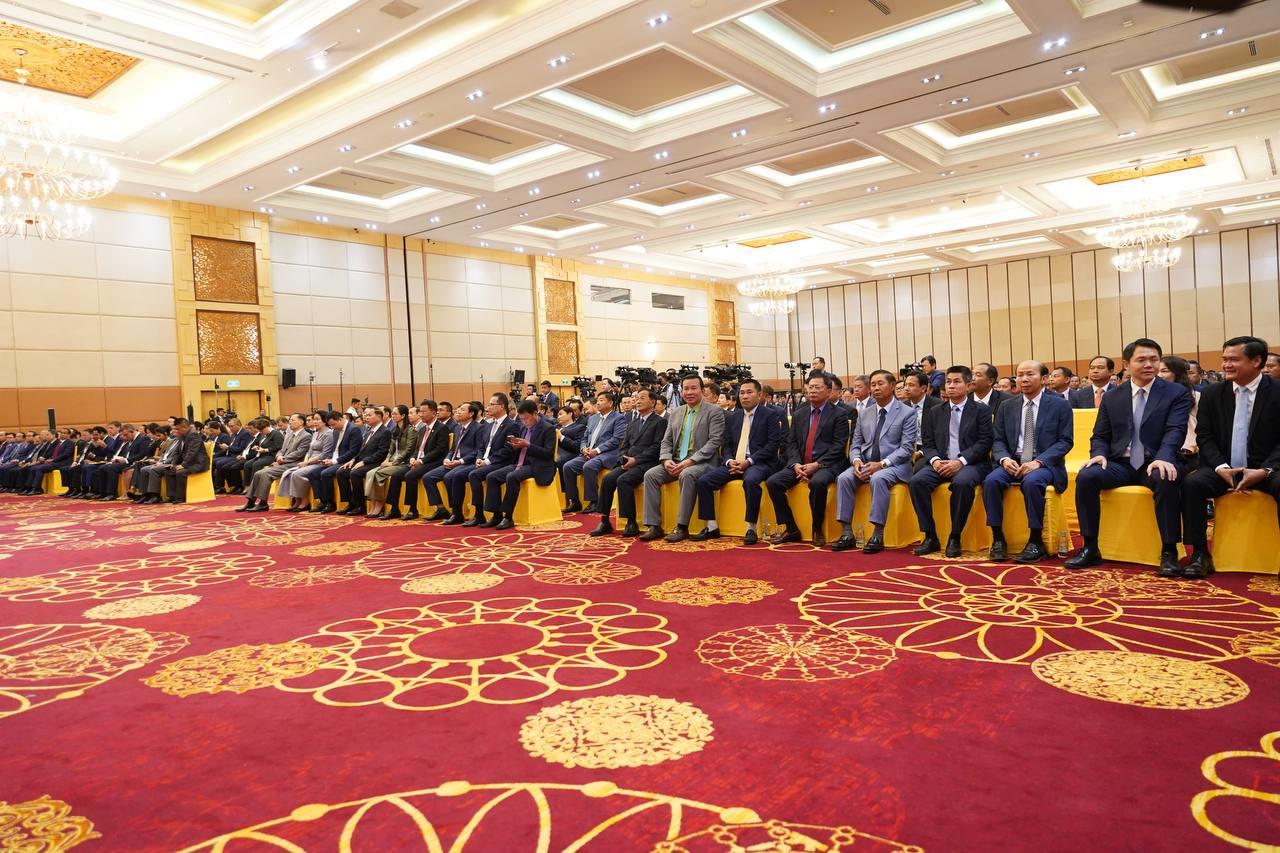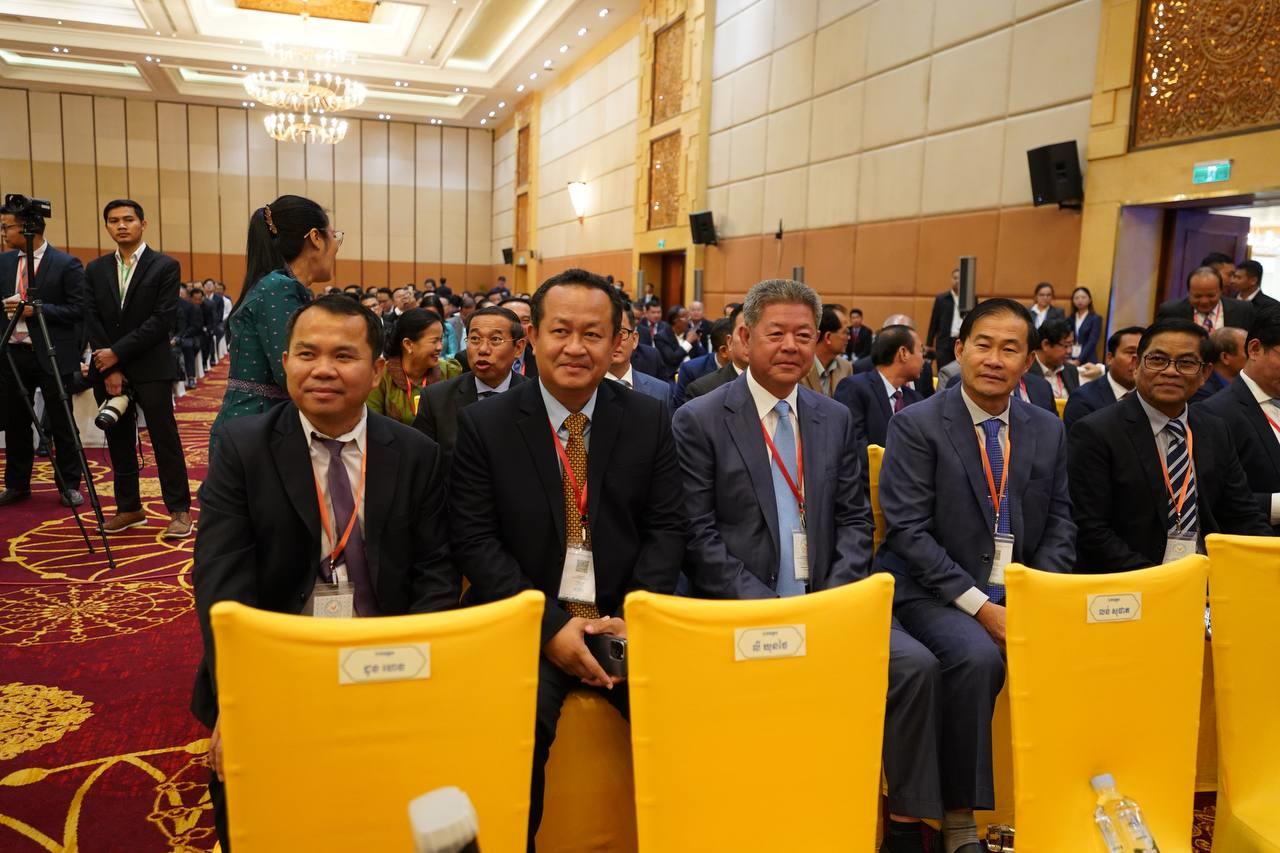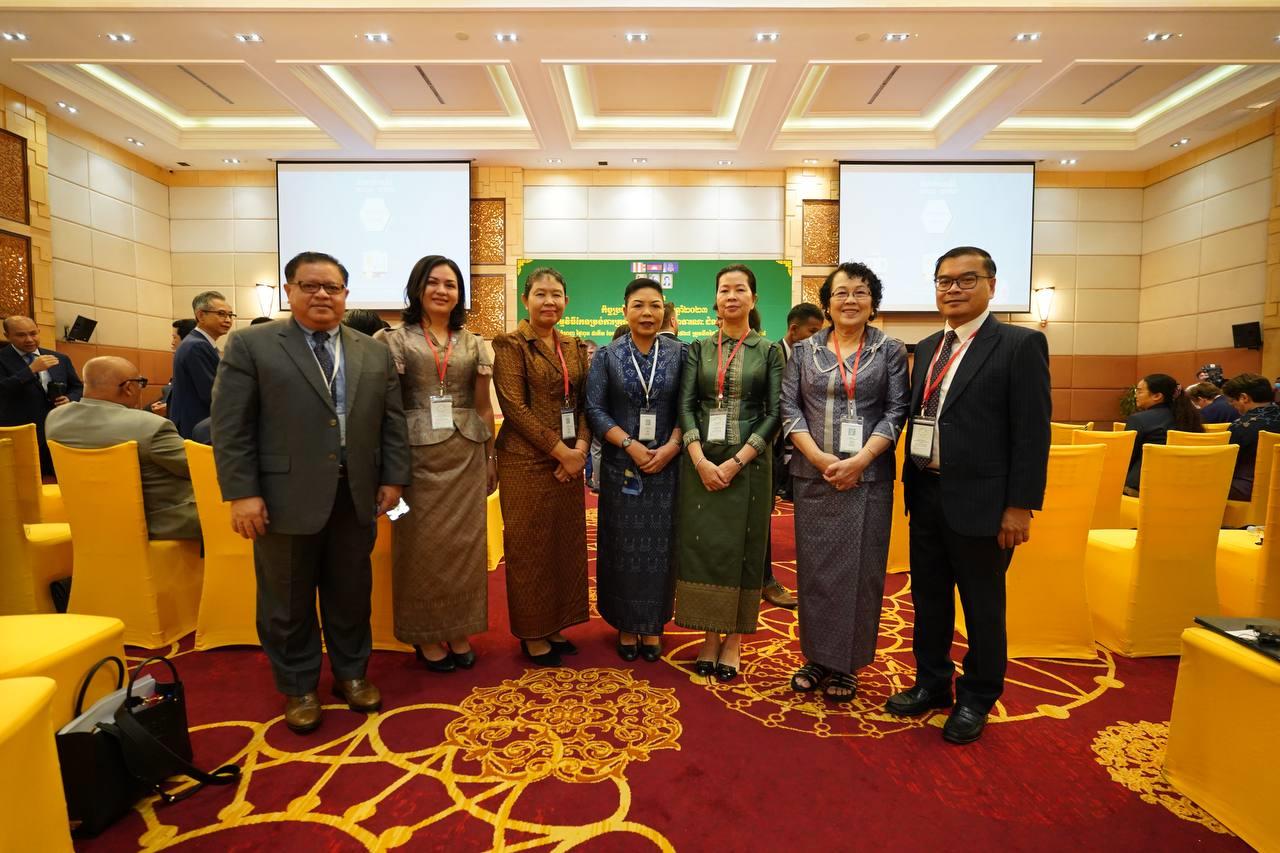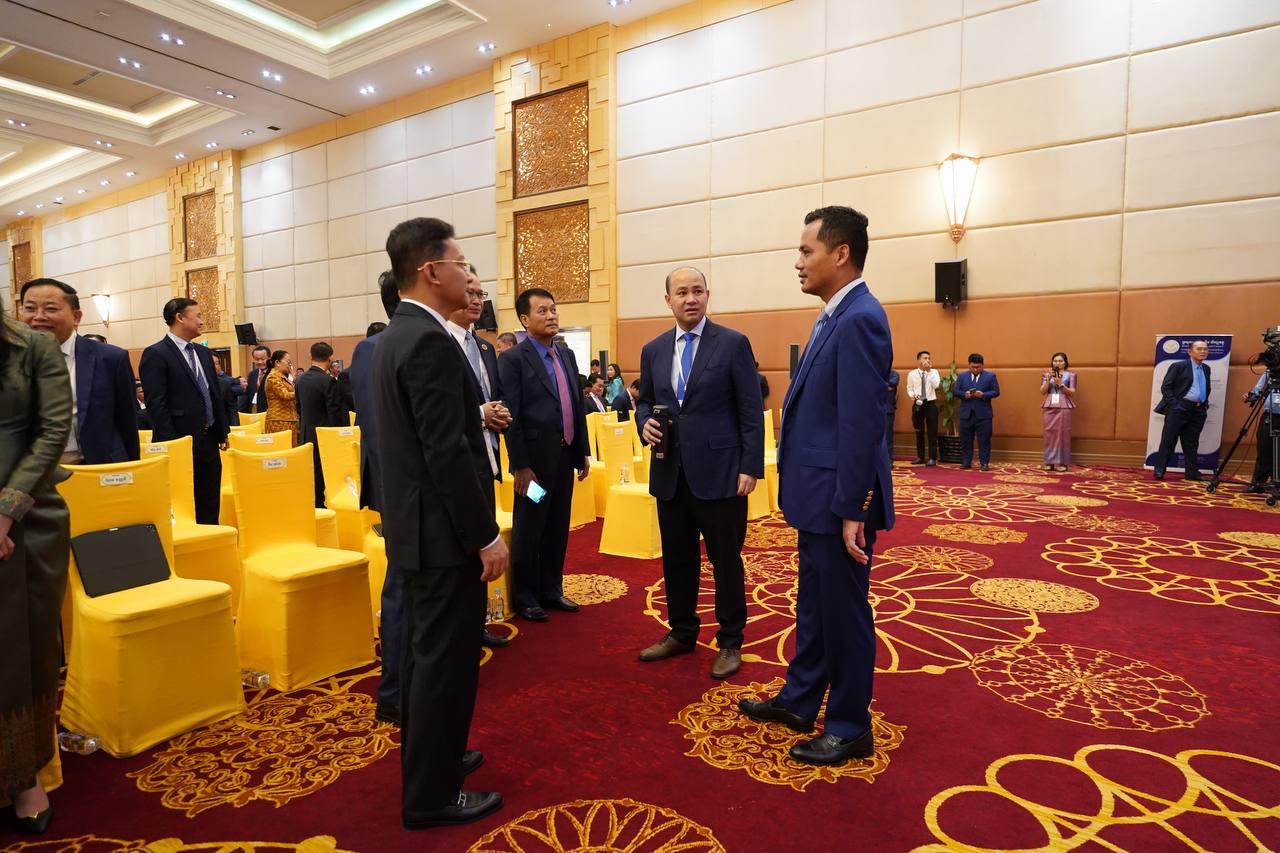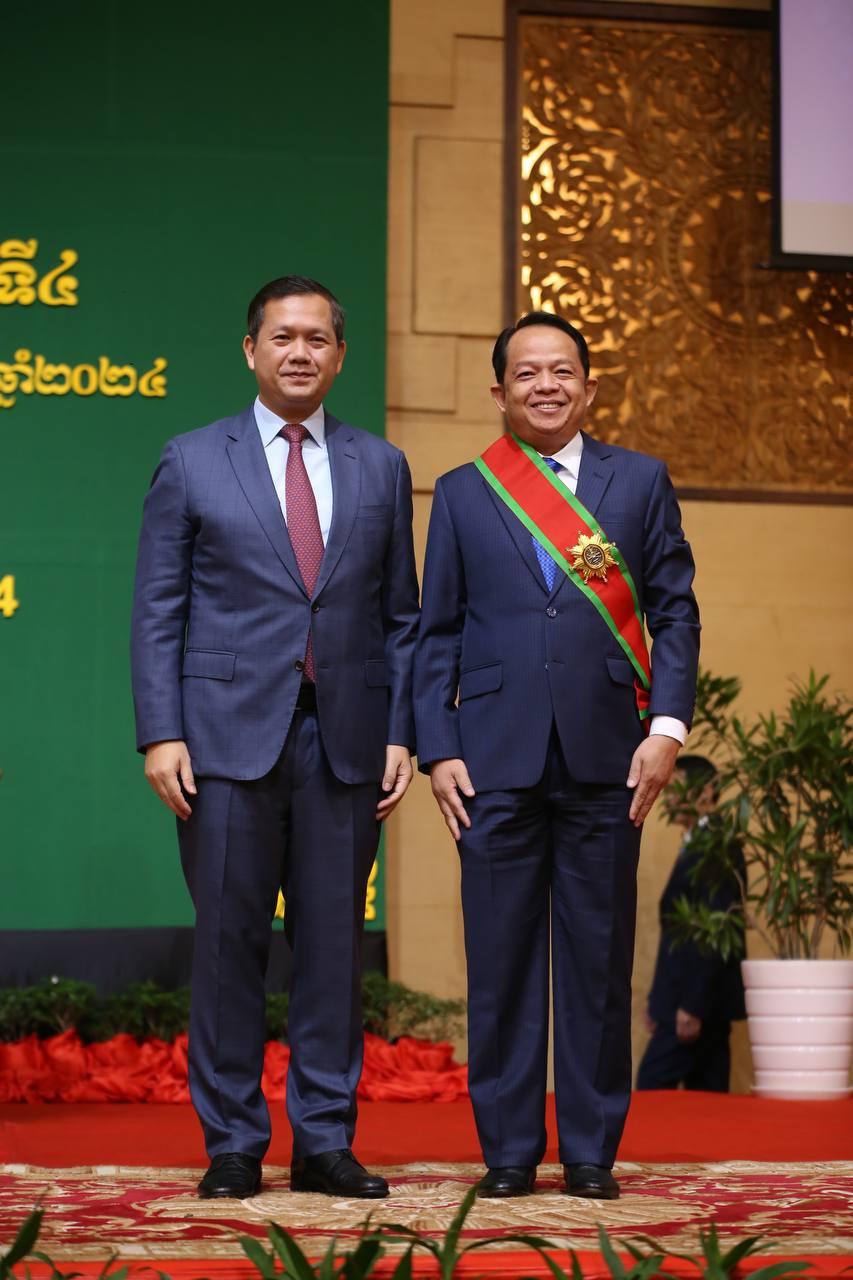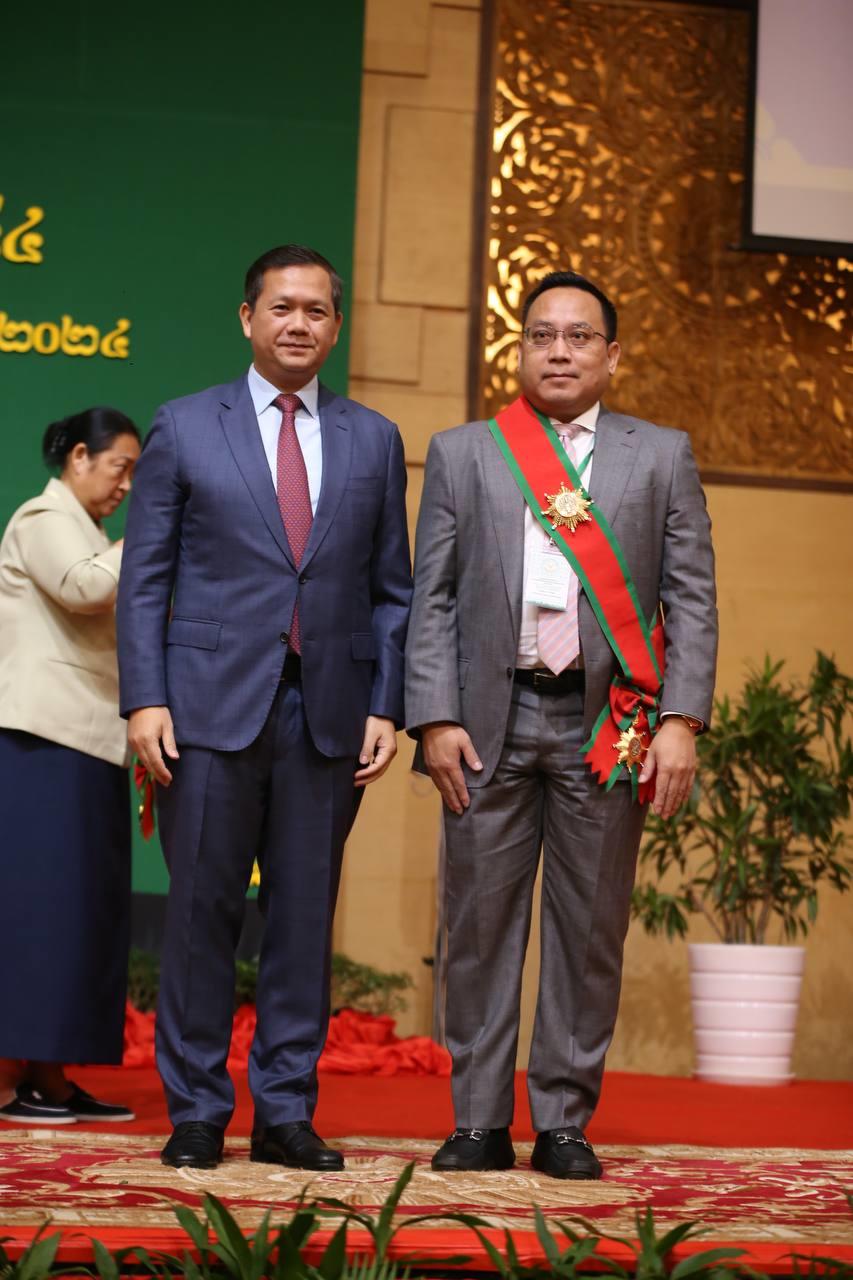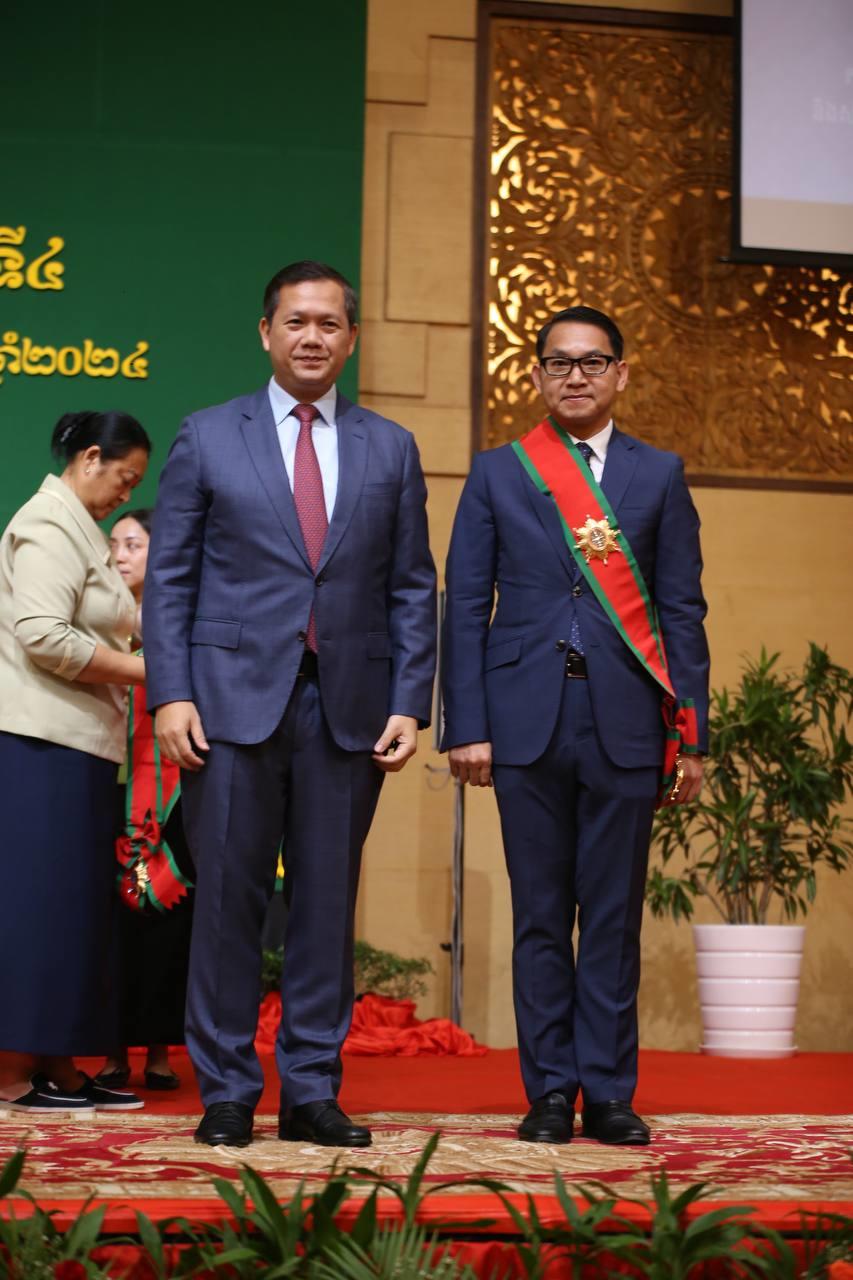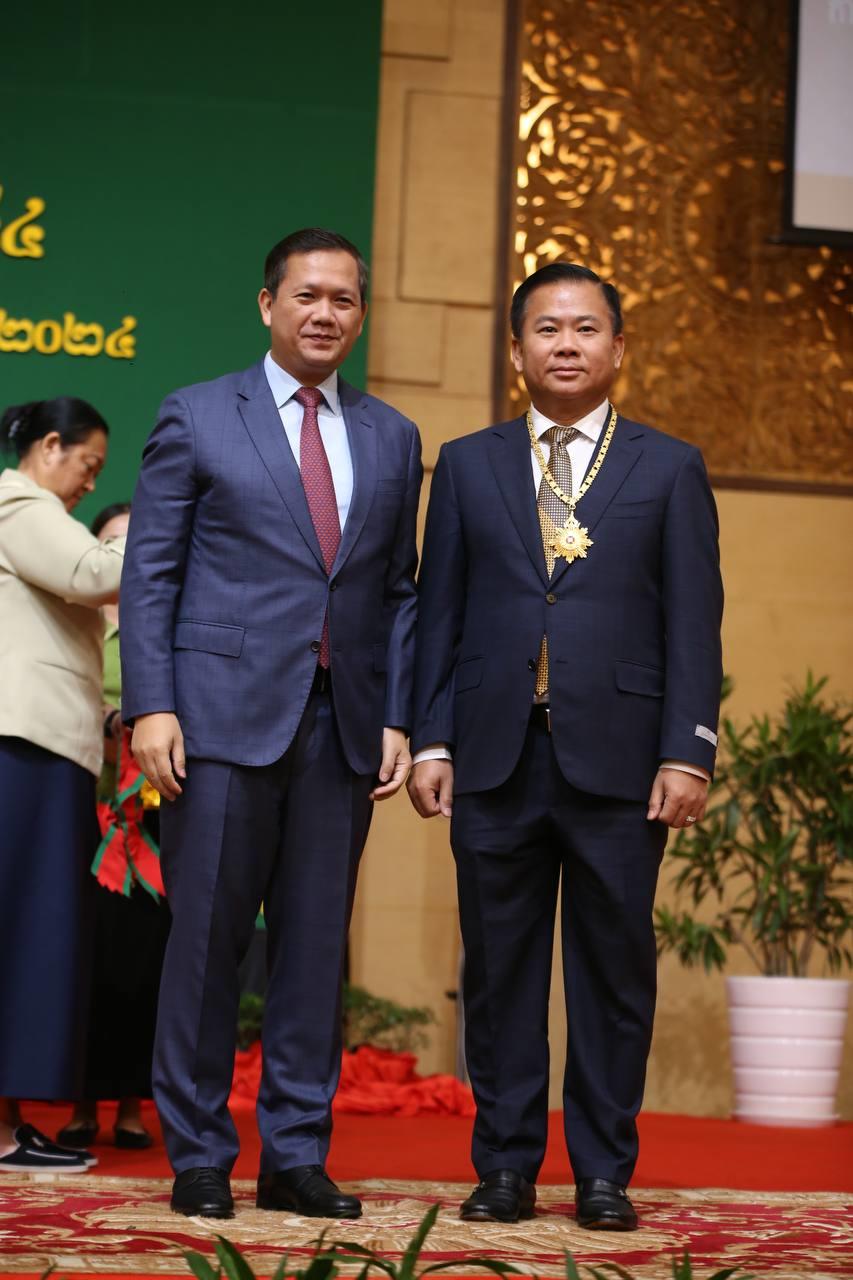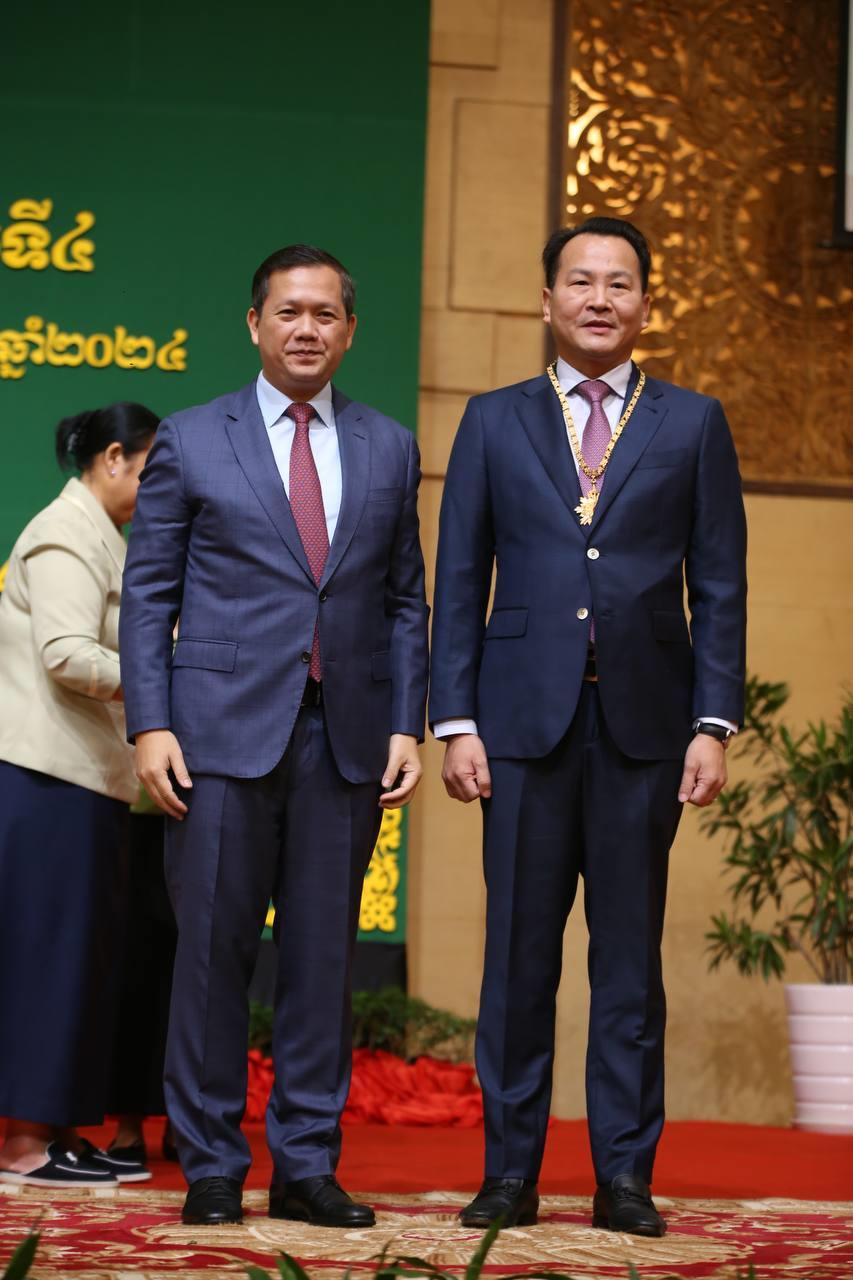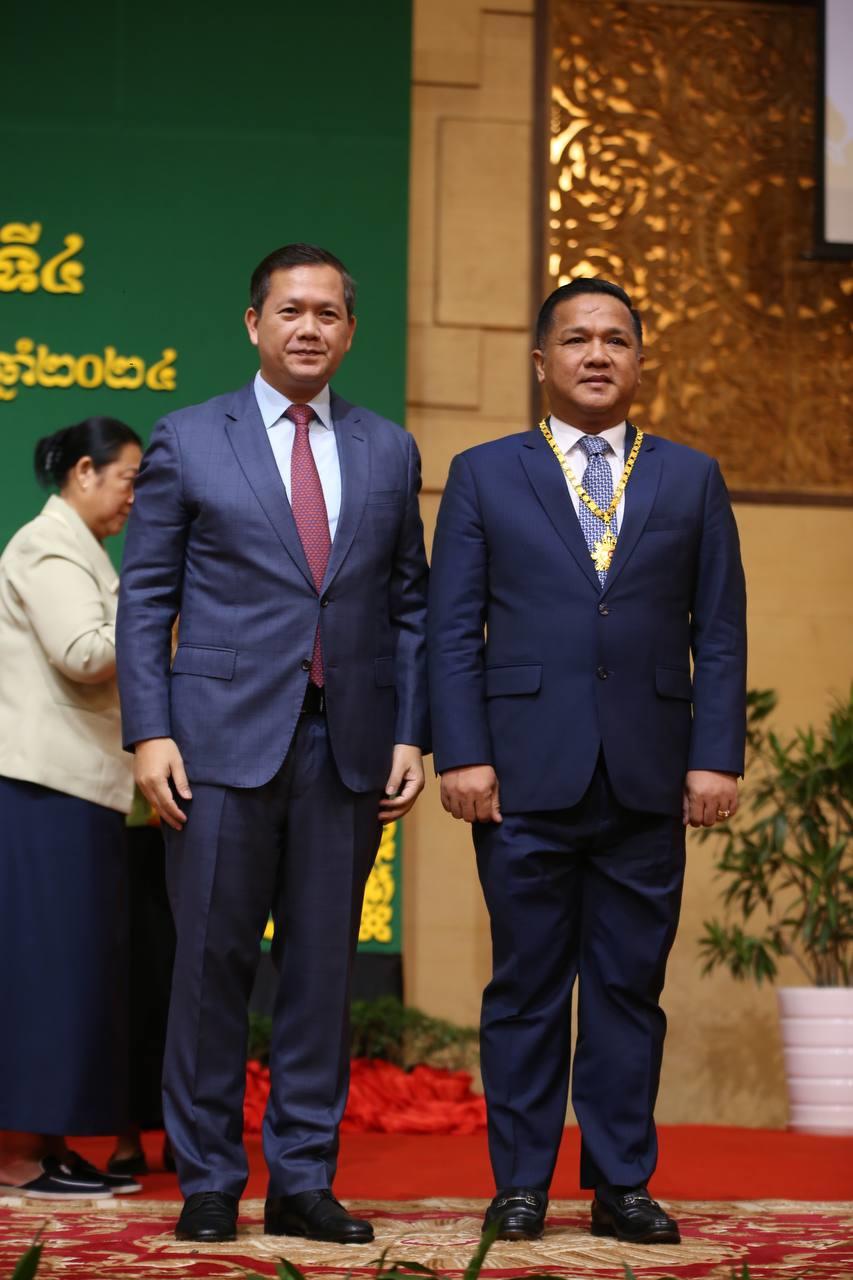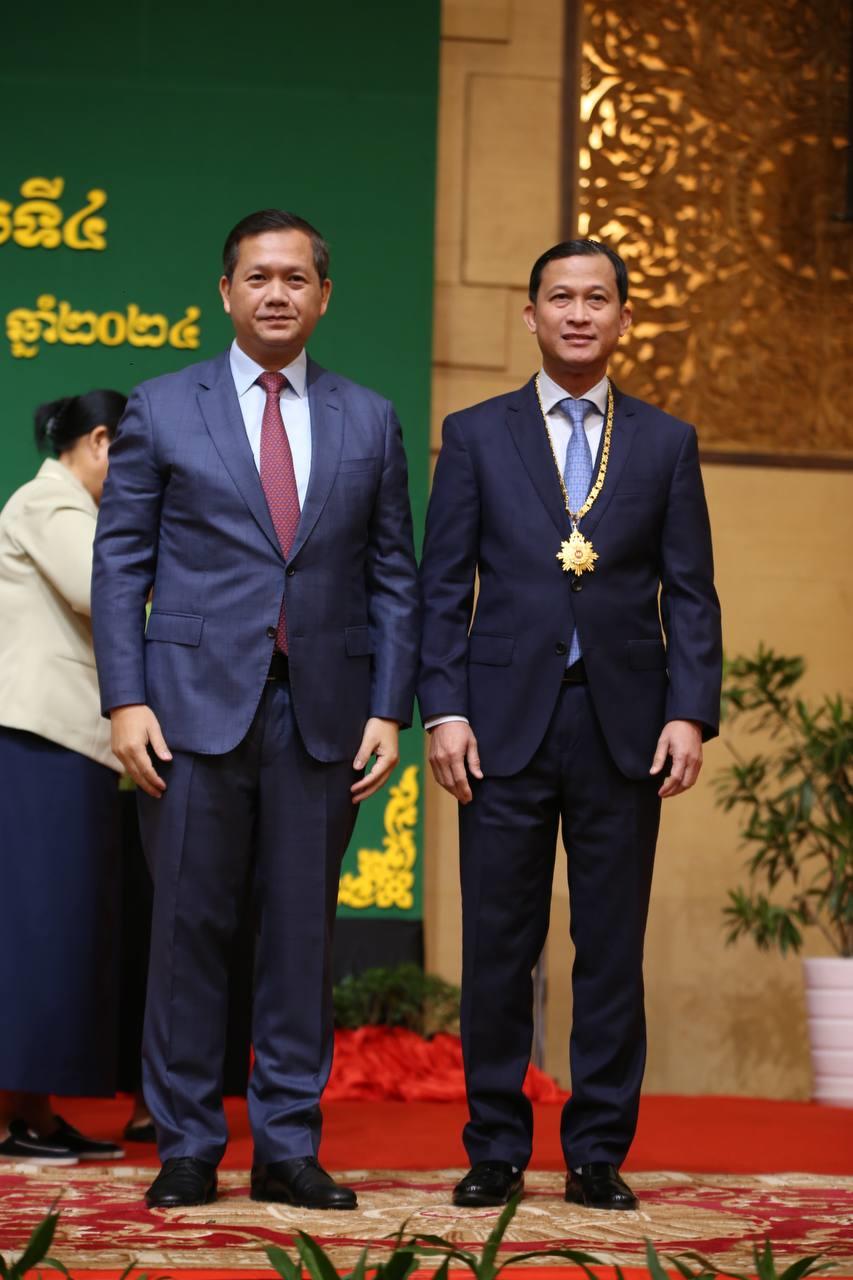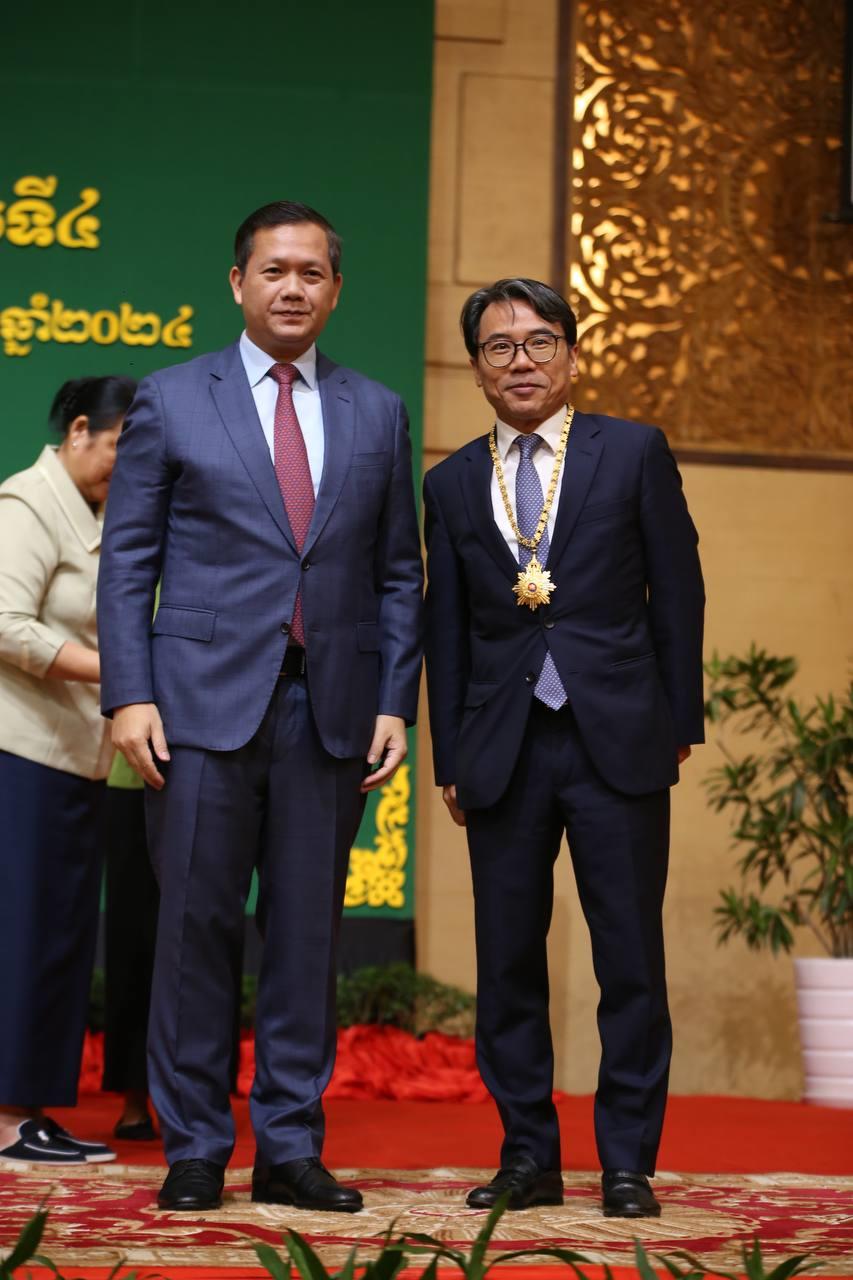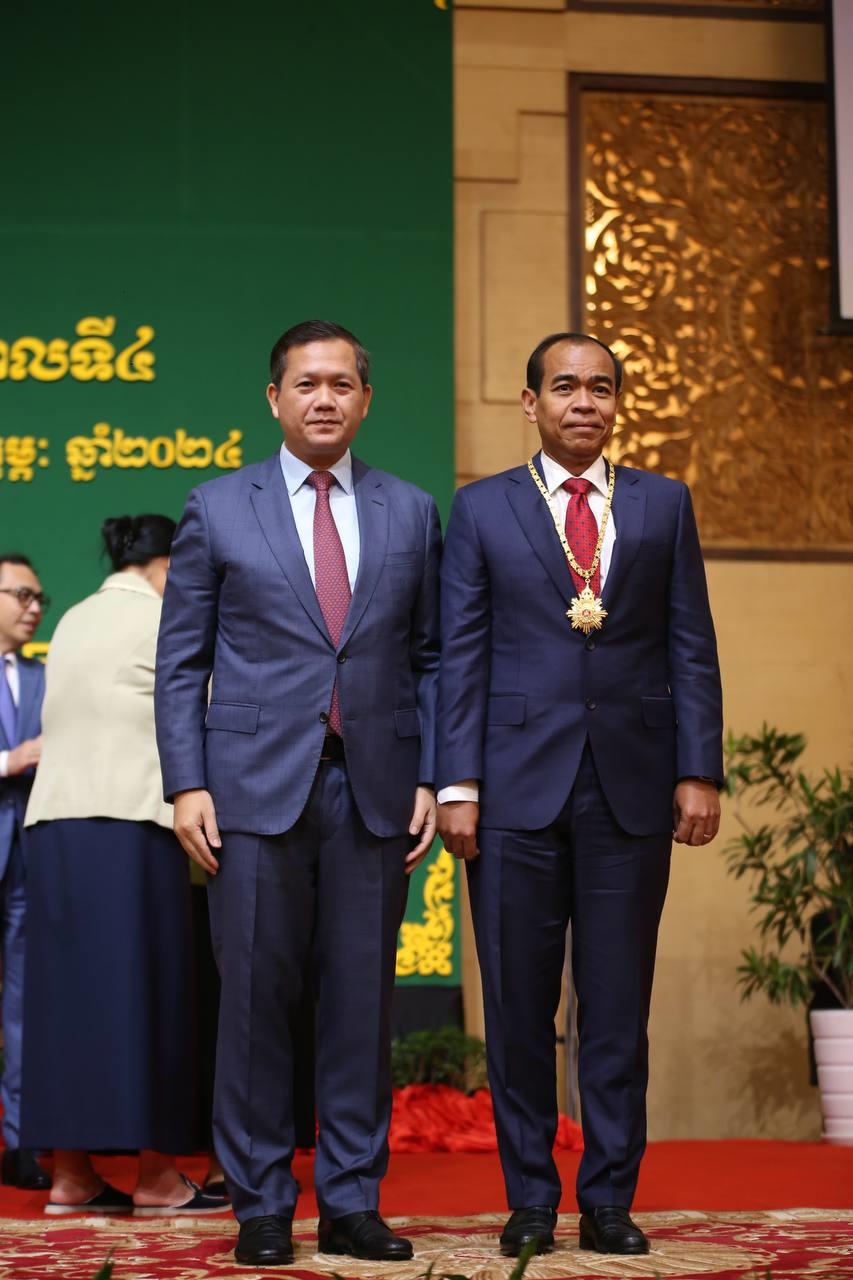Phnom Penh (FN), Feb. 14 – Cambodian Prime Minister Hun Manet provided seven important recommendations to all ministries and institutions as well as committee of the Public Financial Management Reform, offering additional insights for work orientation and strategic planning.
The premier spoke on Wednesday (Feb. 14) during the 2023 annual meeting of the Public Financial Management Reform Program-Stage 4 at Sokha Phnom Penh Hotel.
The seven recommendations include as follow:
1. The priority policy agenda of the seventh-mandate Royal Government has been clearly highlighted in the political programs, strategies, and policies across various sectors, particularly in the Pentagon Strategy-Phase I for Growth, Employment, Equity, Efficiency and Sustainability, laying the foundation for achieving the vision of Cambodia 2050. This strategy was announced by Samdech Thipadei during the first plenary session of the Council of Ministers of the 7th legislature of the National Assembly on 24 August 2023. The premier underlined that the "core" of the Pentagon Strategy is reform and strengthening governance. When it comes to governance reform, attention must be given to institutional management, budgeting, legal framework, and resources. These elements, as part of a comprehensive package, aim to modernize state institutions into a modern public administration with high capacity, integrity, intelligence, and cleanliness. This includes exercising state, political, economic, and administrative authority in leadership, management, and administration, managing national affairs, and ensuring the sustainability of the role and function of public administration while considering the interests of the people, nation-building, and strengthening the rule of law to support socio-economic development and sustainability.
In this spirit, the premier has decided to spearhead three "key measures" out of the five announced with the Pentagon Strategy-Phase I in the initial session of the Council of Ministers include, (1) Public administration quality reform, with a particular focus on civil servant recruitment, institutional strengthening, and the establishment of an achievement-based incentive system, (2) Reforming the quality of education, especially from kindergarten to secondary school, (3) Quality reform in the health sector, particularly in health centers and referral hospitals across the country. Clearly, all of these priority agendas are directly linked to the "Public Financial Management Reform Program".
2. Certainly, setting clear, targeted, and comprehensive policies, strategies, and priority programs in response to proposals for economic and social development, as well as to address the aspirations of the people, is an important task. However, what is even more crucial is the effectiveness of implementation to translate any policy or reform program into realistic outcomes as anticipated. Strengthening this aspect is vital moving forward.
In this regard, Samdech Thipadei has frequently underlined that the seventh-mandate focuses on enhancing the quality and capacity of institutions based on existing frameworks rather than expansion. To ensure the effectiveness and efficiency of policies and reforms, the premier recommends that all ministries and institutions at every level adhere to the "whole-of-government approach" or "one-system approach" in both the preparation and implementation of policies, strategies, and programs, particularly for cross-sectoral endeavors. This approach promotes interoperability and necessitates multi-player collaboration to avoid fragmentation, which can compromise efficiency and effectiveness, as well as create uncertainty regarding responsibilities.
3. In pursuit of "strengthening accountability," which entails accountability based on results, the reform efforts of the Royal Government of Cambodia have reached a significant strategic milestone, which is our primary objective. Essential changes are needed in terms of policy and priority strategies, focusing on enhancing the efficiency, quality, and accountability of public institutions and civil servants within the Royal Government as a whole. In this context, for the public financial management reform program, with the transfer of authority to manage financial resources, each ministry and institution will bear significant responsibility for budget utilization to ensure effectiveness, efficiency, and goal setting. Each party is accountable for achieving its policy objectives, mission, and expected outcome indicators in accordance with the principle of "linking the budget to policy." Moreover, strict responsibility lies in the effective use of approved budgets, transparency, accountability, and ensuring the "value for money" in line with existing public financial management provisions.
In this spirit, Samdech Thipadei urges the leaders and civil servants of all ministries and institutions involved in the Public Financial Management Reform Program to focus on several key tasks include, (1) Enhance ownership of public financial management reform within ministries and institutions; Ministers must promote the implementation of public financial management reform based on the common principles of the Royal Government, (2) Strictly adhere to the Law on Public Financial System 2023 and prepare all necessary legal standards for timely implementation of this law, (3) Continue pushing for the implementation of budget reform strategies and other relevant reform strategies to achieve planned results, (4) Promote the organization and implementation of financial decentralization more effectively and efficiently, (5) Facilitate the preparation and approval of the medium-term public financial framework, (6) Conduct a comprehensive analysis to determine the complexity level of budget reform issues at both national and sub-national levels and devise specific strategies to address each issue to ensure that the strategic direction of budget system reform, based on the principle of "performance accountability," achieves set goals, (7) Continue studying the authority framework and accountability lines established within the framework of program budget implementation and budget units, from objective and policy levels to operational activities, and coordinate with the institutional structure.
4. Samdech Thipadei encourages the General Secretariat, Steering Committee of the Public Financial Management Reform to continue promoting the use of digital technology in public financial management by integrating and intertwining with other Royal Reform programs.
5. To ensure the efficiency and effectiveness of its work, the Royal Government requires a consistent and quality monitoring and evaluation system. Currently, audit and inspection functions are being implemented by various ministries and institutions, including the National Audit Authority, Ministry of Inspection, Ministry of Economy and Finance, Ministry of Public Function, as well as internal audit and inspection in each ministry. In addition to this compliance monitoring system, we also utilize the Monitoring and Evaluation (M&E) approach. These control systems are essential for strengthening the effectiveness of ministries and institutions' functions and duties, as well as in the management of public finances. Therefore, along with the transfer of authority, functions, and budget management to budget entities, it is necessary to ensure that these oversight functions are strengthened to effectively mirror and assist in the accountability framework.
However, the Royal Government also recognizes that the implementation of inspection, audit, monitoring, and evaluation functions by various ministries and institutions can create challenges that burden the efficiency of both the public and private sectors. Therefore, Samdech Thipadei encourages the General Secretariat, Steering Committee of the Public Financial Management Reform to study and propose a framework for harmonizing the functions of the inspection and audit system for the Royal Government to review and achieve soon.
6. Samdech Thipadei also underlined the need to link "strengthening accountability and performance" in public financial management reform to "promoting a culture of capitalism", which adheres to the principle of "Quality, Ability, and Distinction" in work culture, especially in human resource management. This principle must be implemented not only within the framework of the public financial management reform program but also become a priority principle of the Royal Government to strengthen governance and institutional capacity at all levels.
7. The last point Samdech Thipadei wanted to underscore is related to the need to continue fostering the "spirit of reform". Over the past 20 years, Cambodia has made significant progress in reforming public financial management. However, the achievements of this reform have not come easily. Approved, in the past, present, and future, no reform work has been easy, nor have any achievements of reform work been achieved without payment. As Samdech Thipadei has mentioned in some forums in the past, successful reform must be based on four main factors. Firstly, having a clear vision; Second, being highly committed; Third, being honestly involved; and Fourth, there must be sacrifice. Based on this, Samdech Thipadei reiterates that the seventh-mandate Royal Government will continue to uphold the "spirit of reform" and adhere to the five approaches of Samdech Techo for proactive, vigilant, and resolute reforms of self-reflection, showering, scrubbing, treatment and surgery.
=FRESH NEWS
